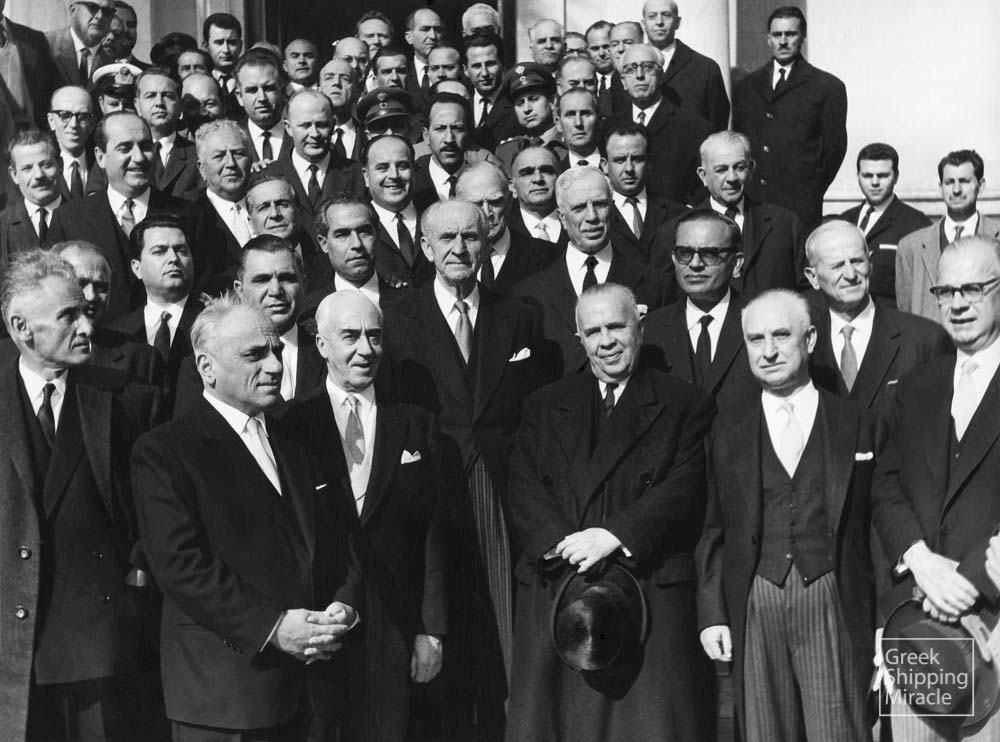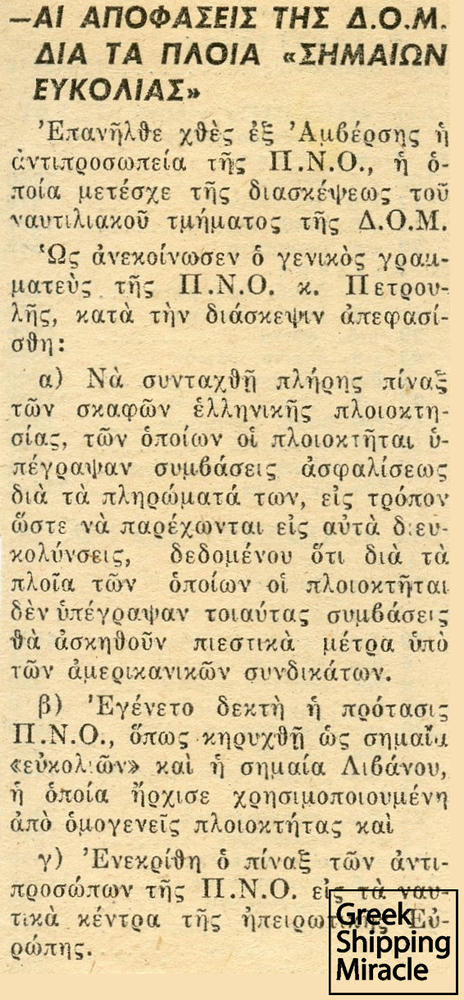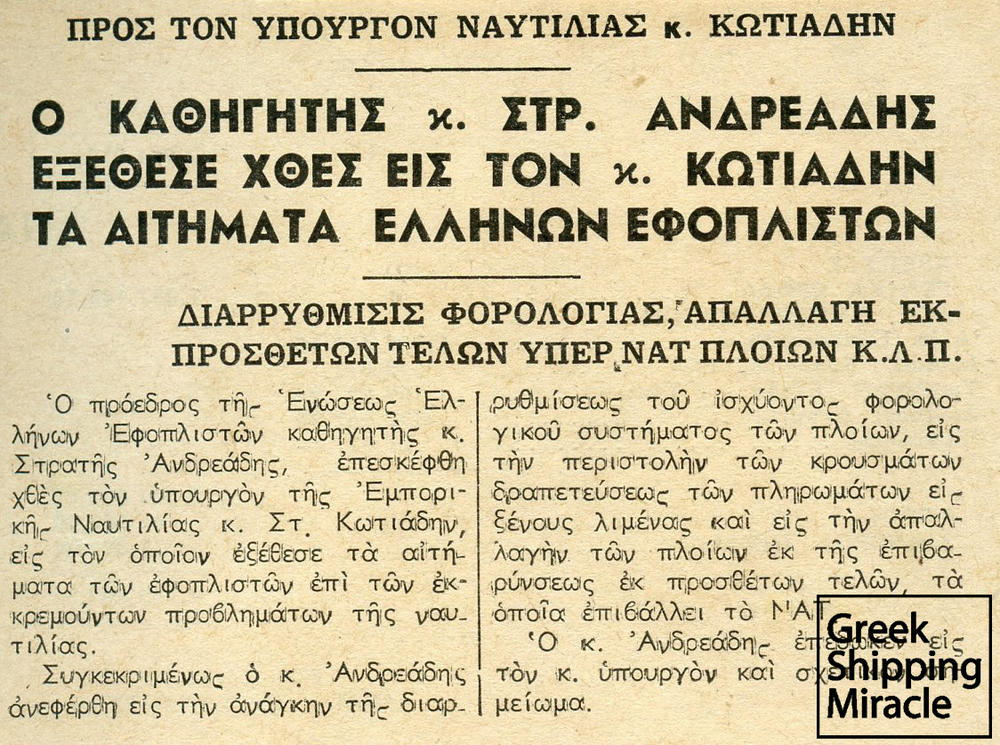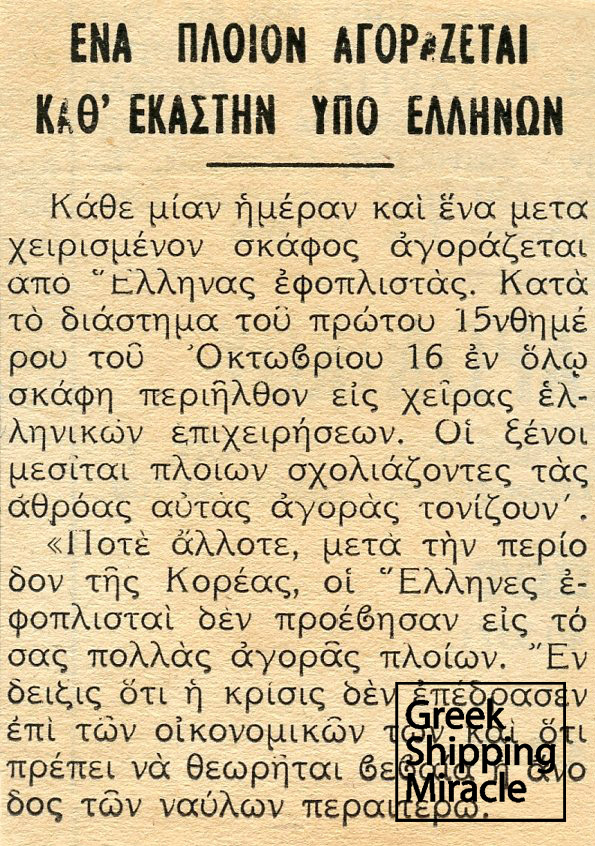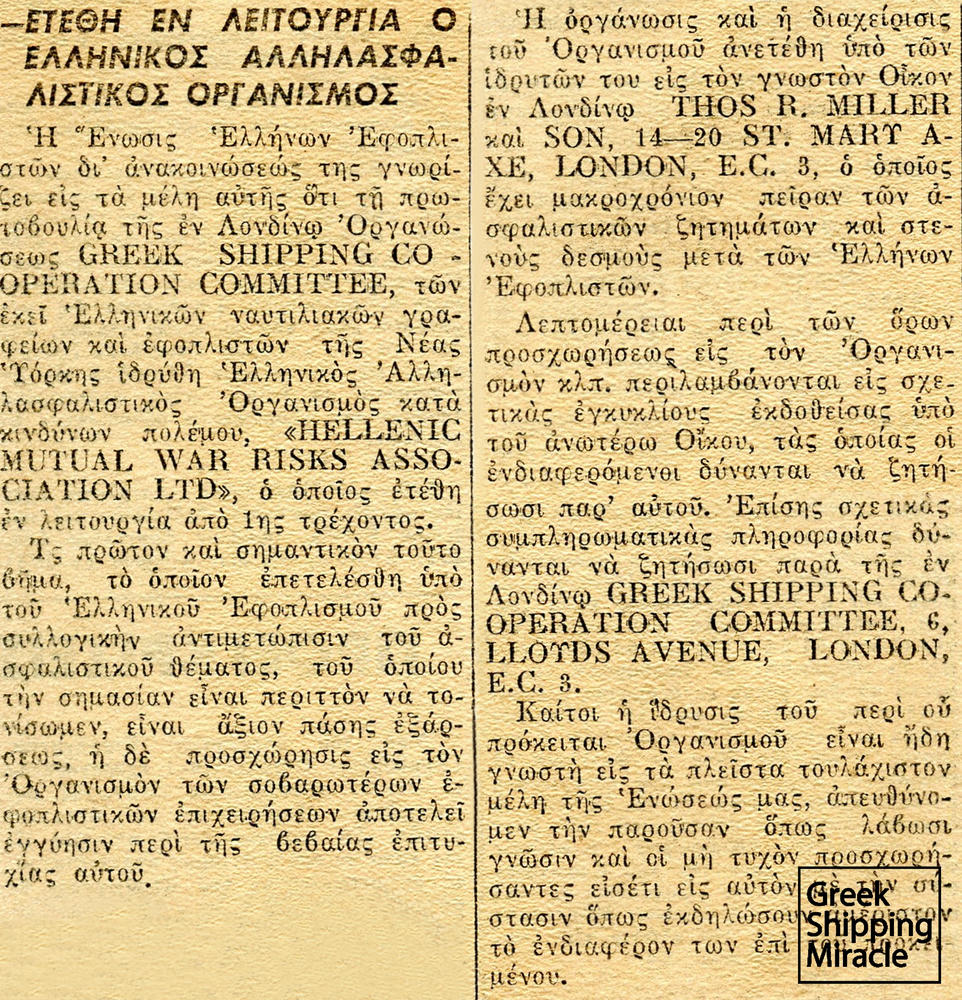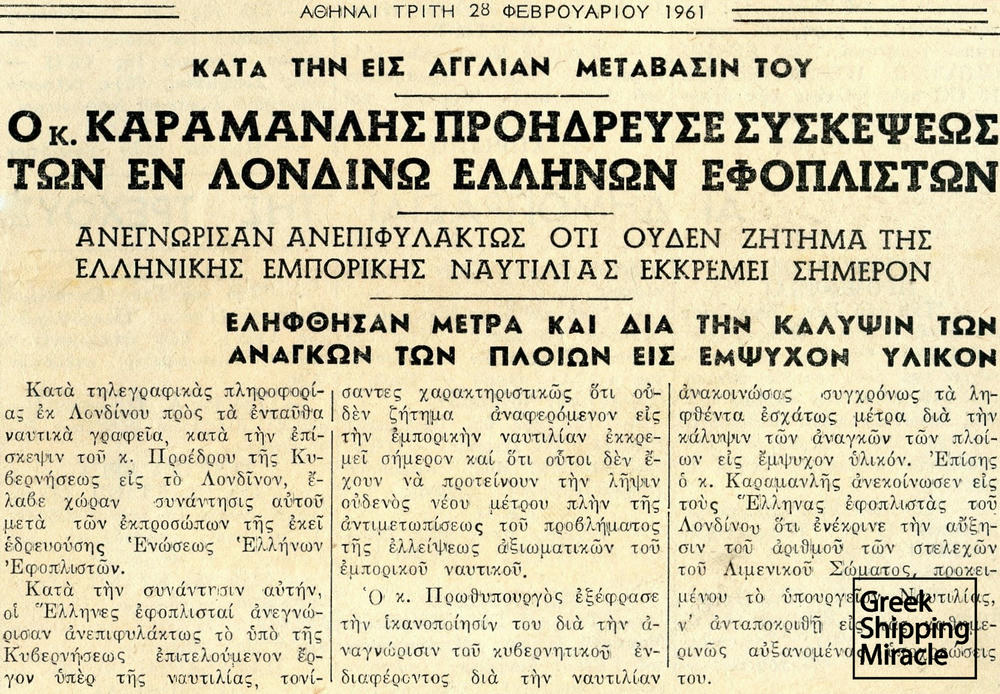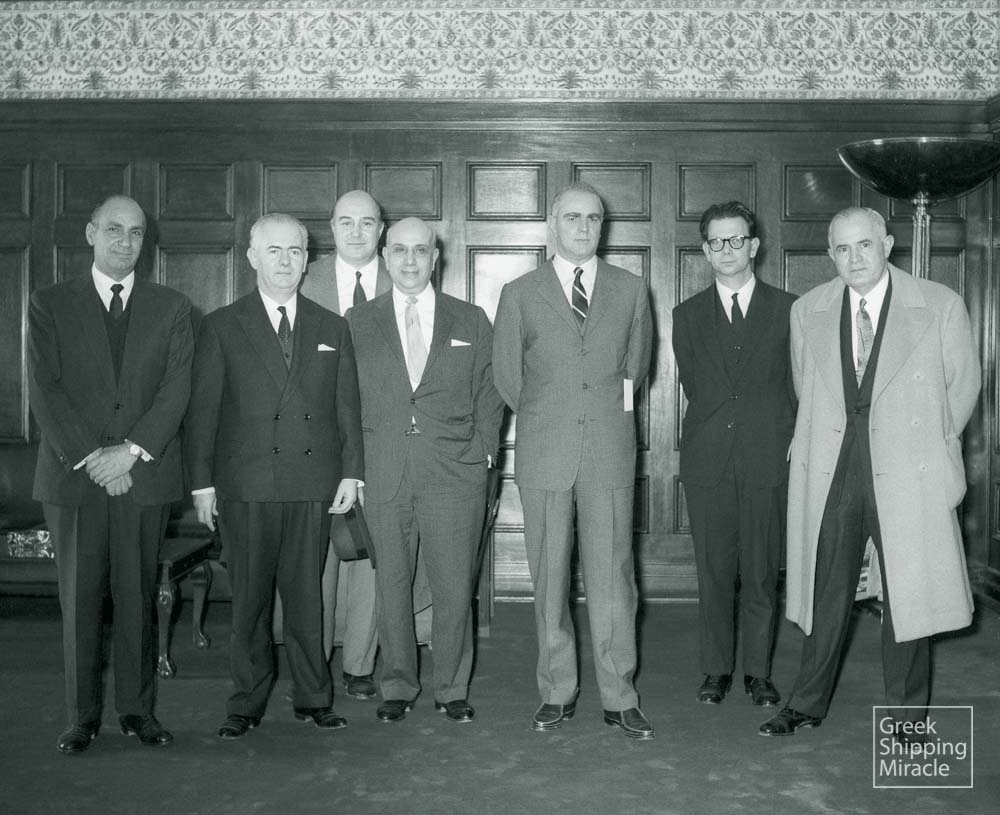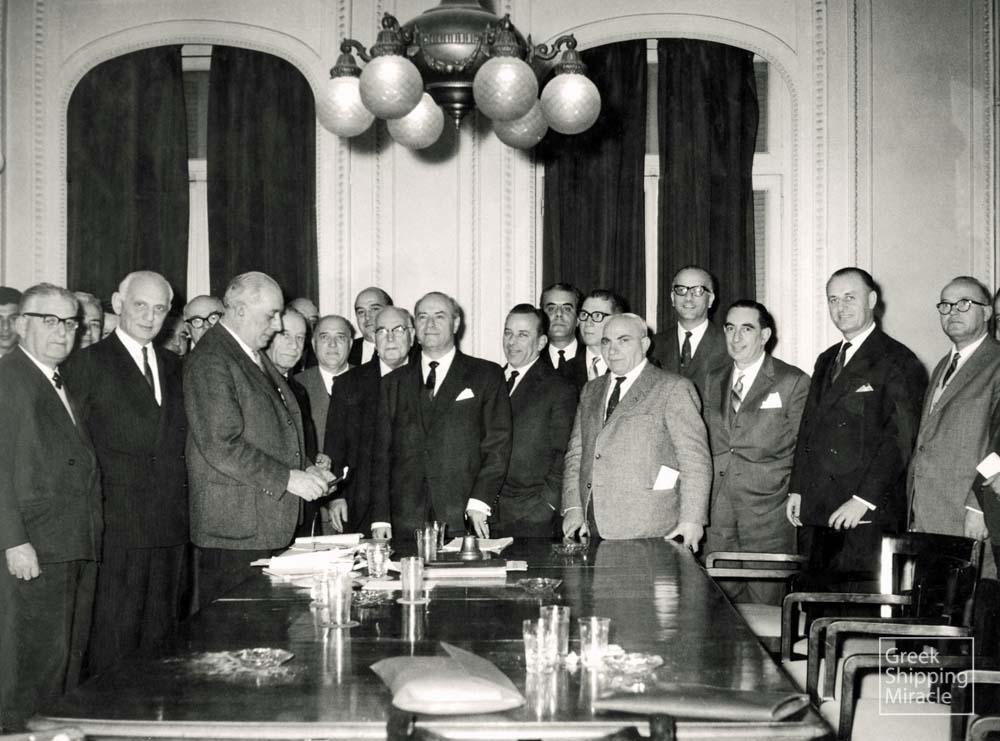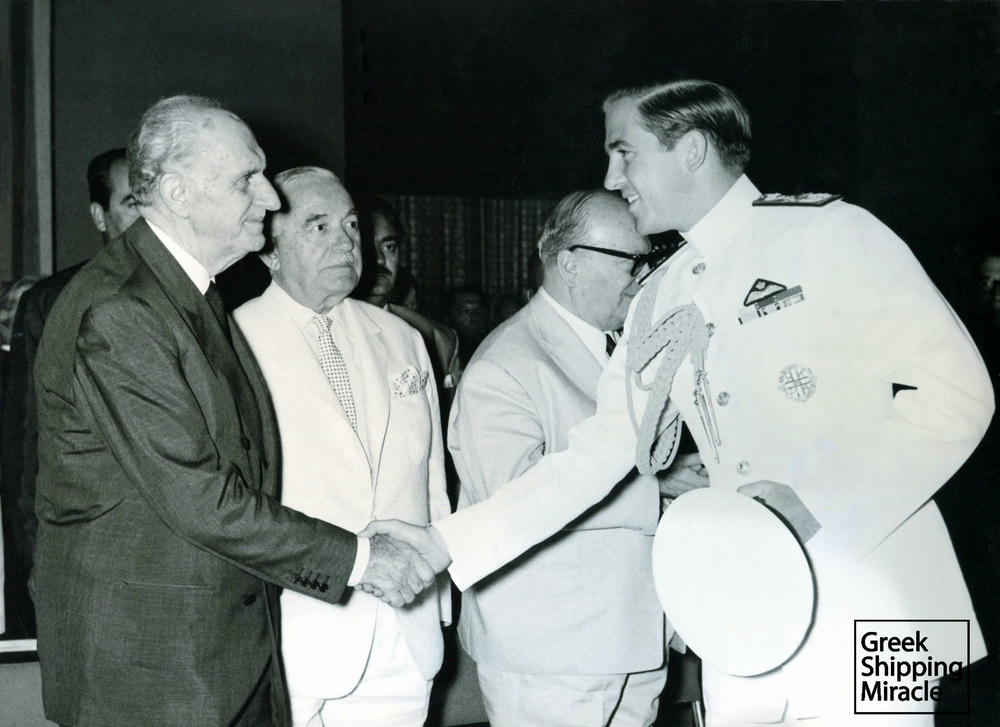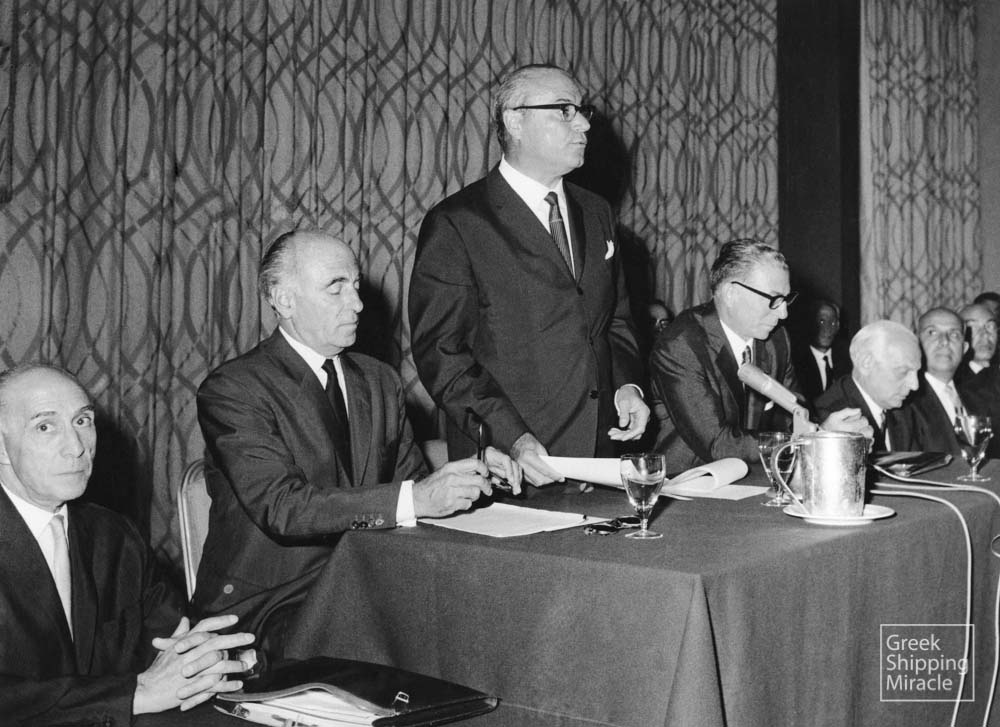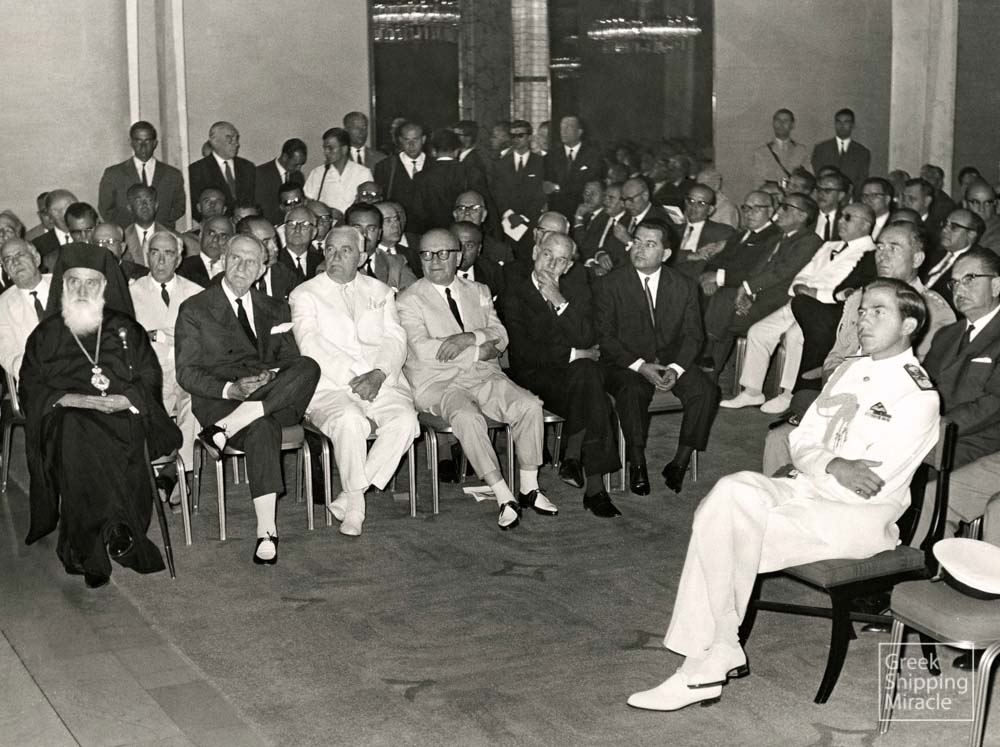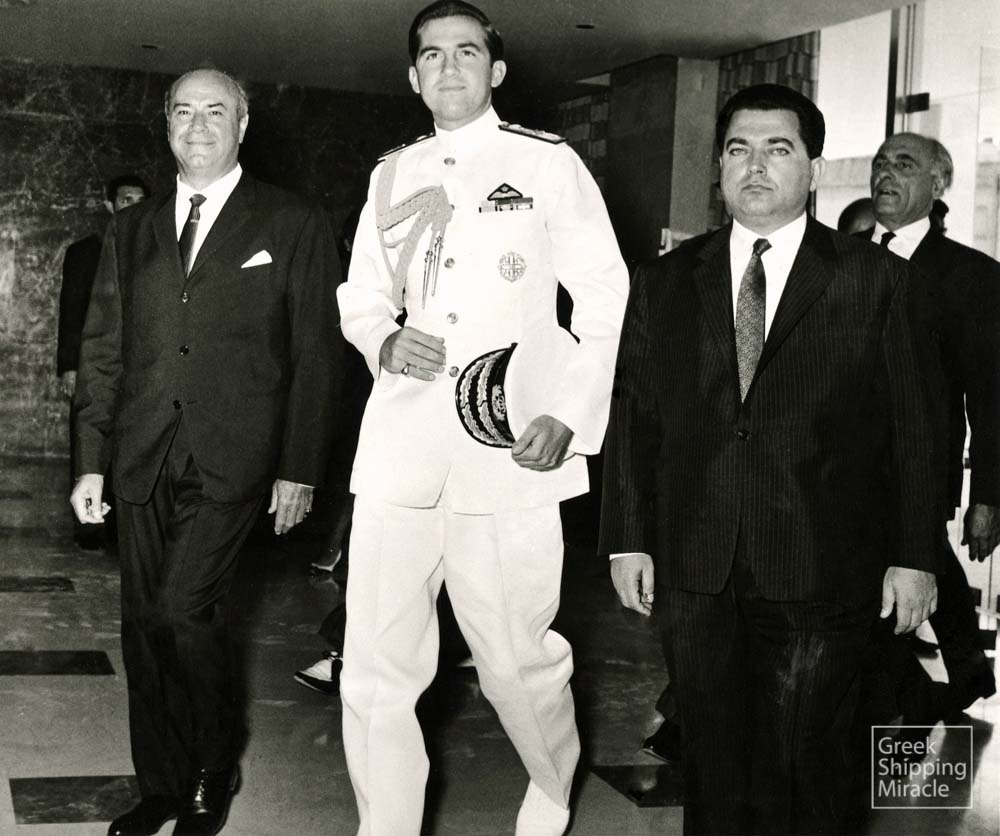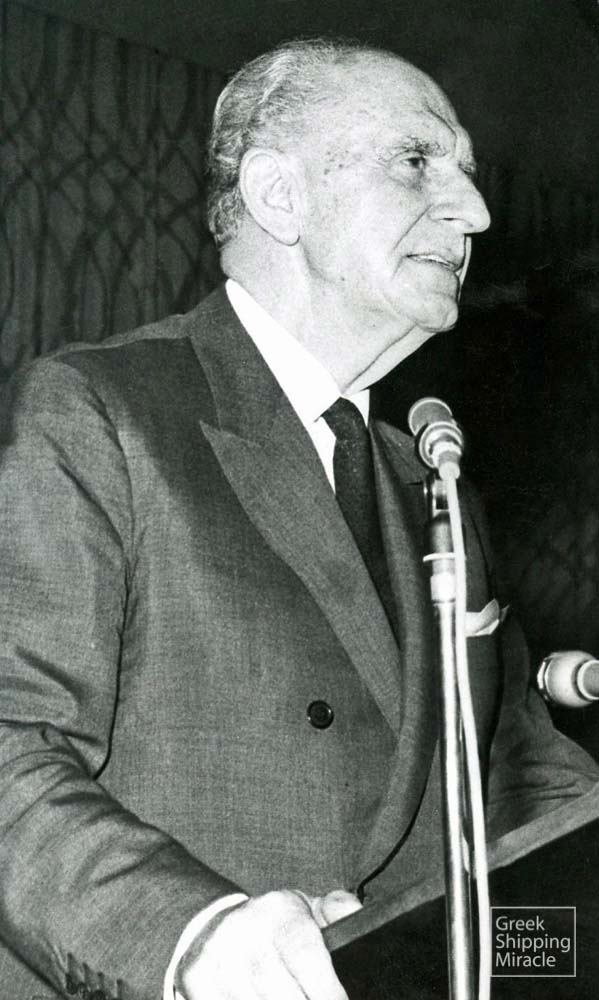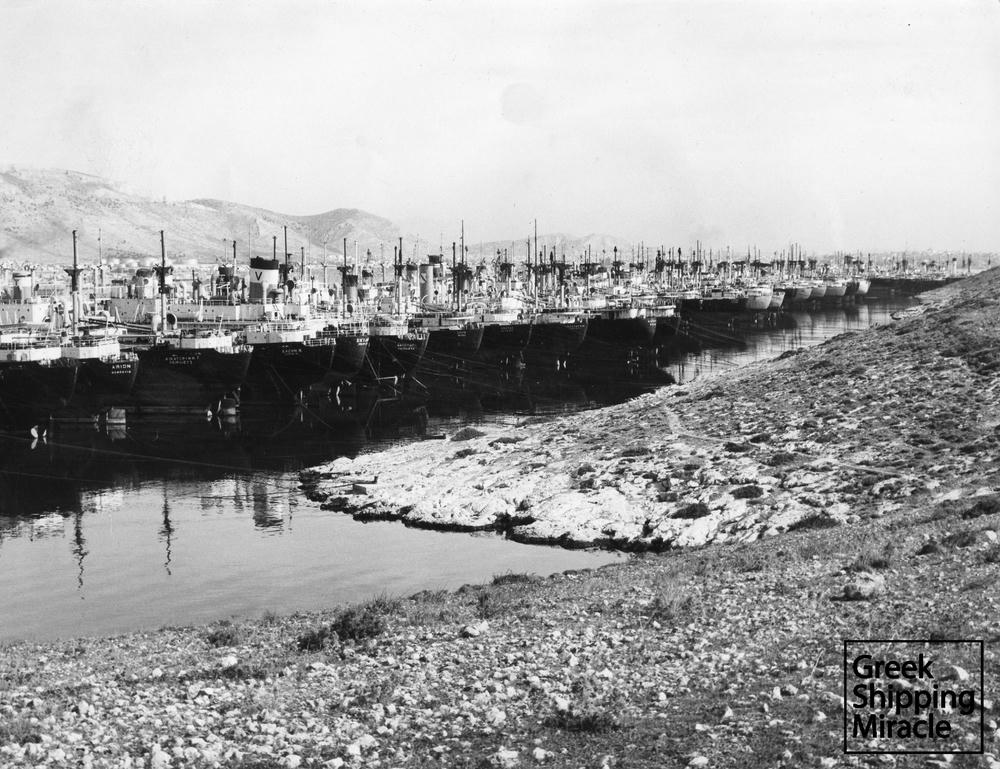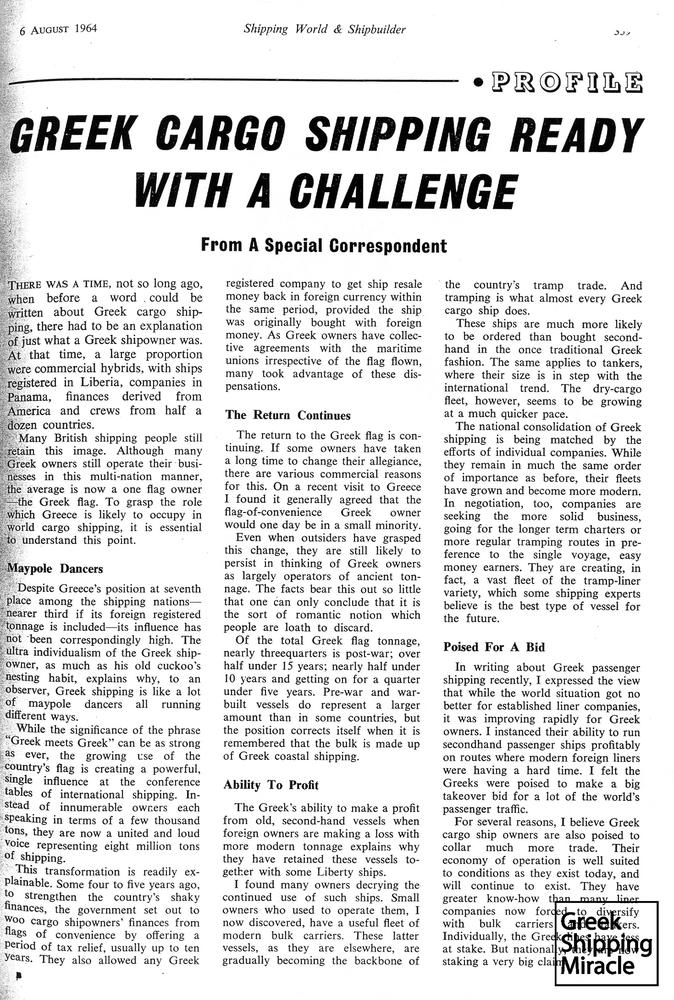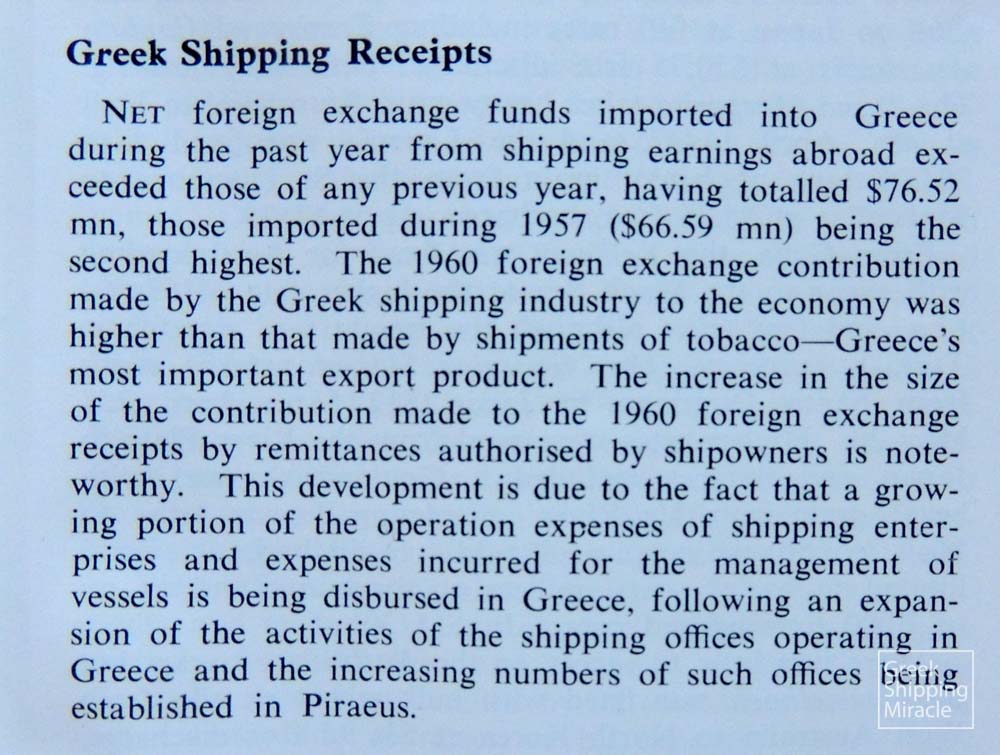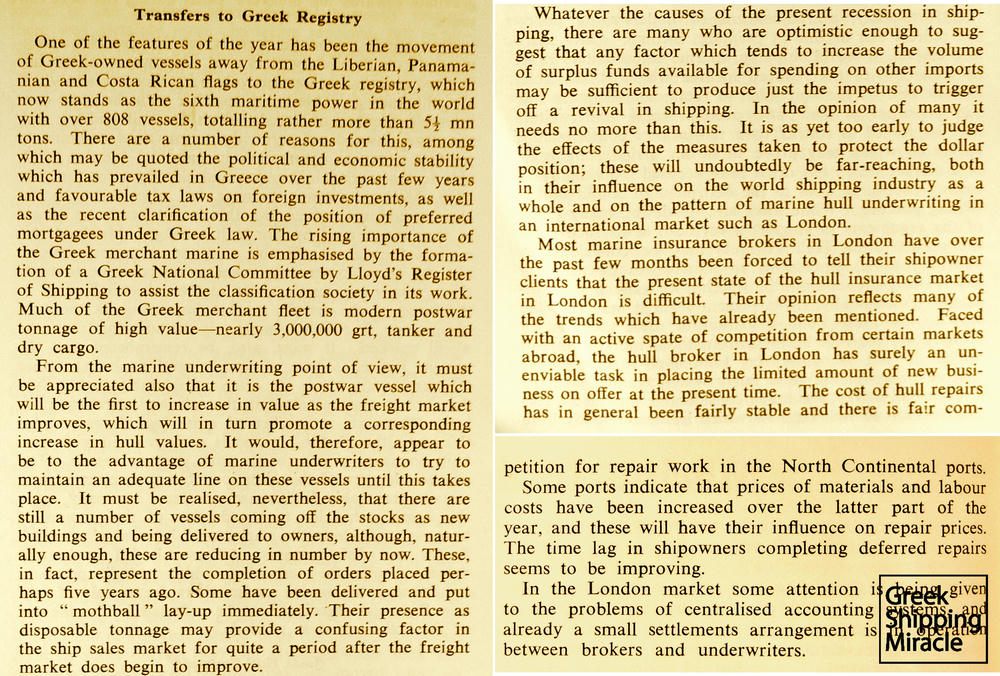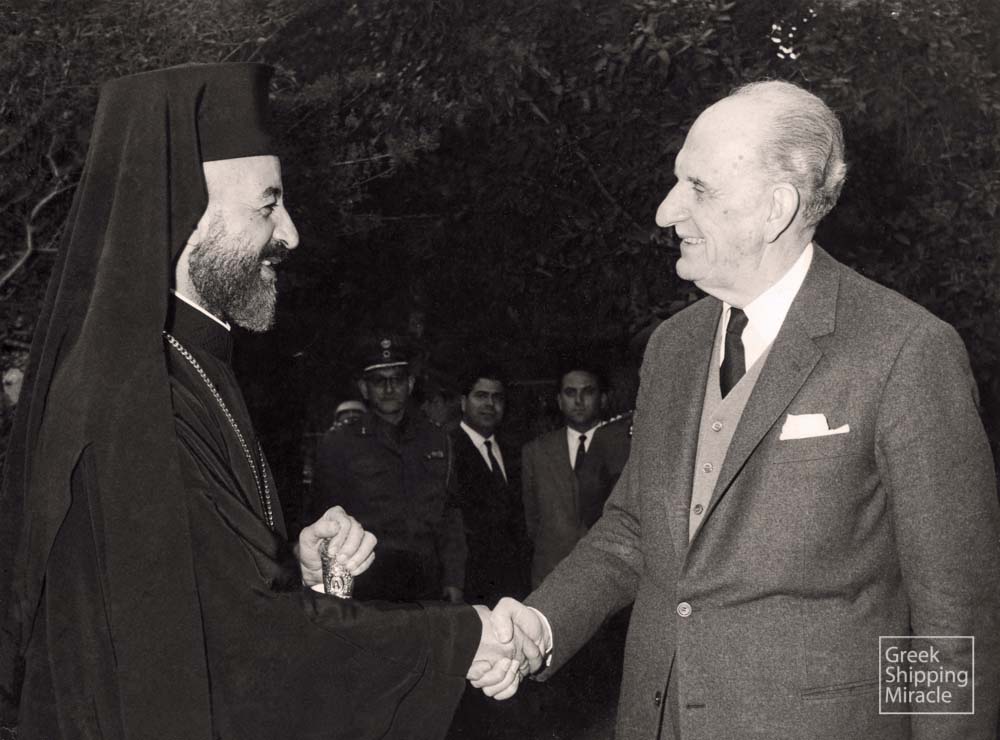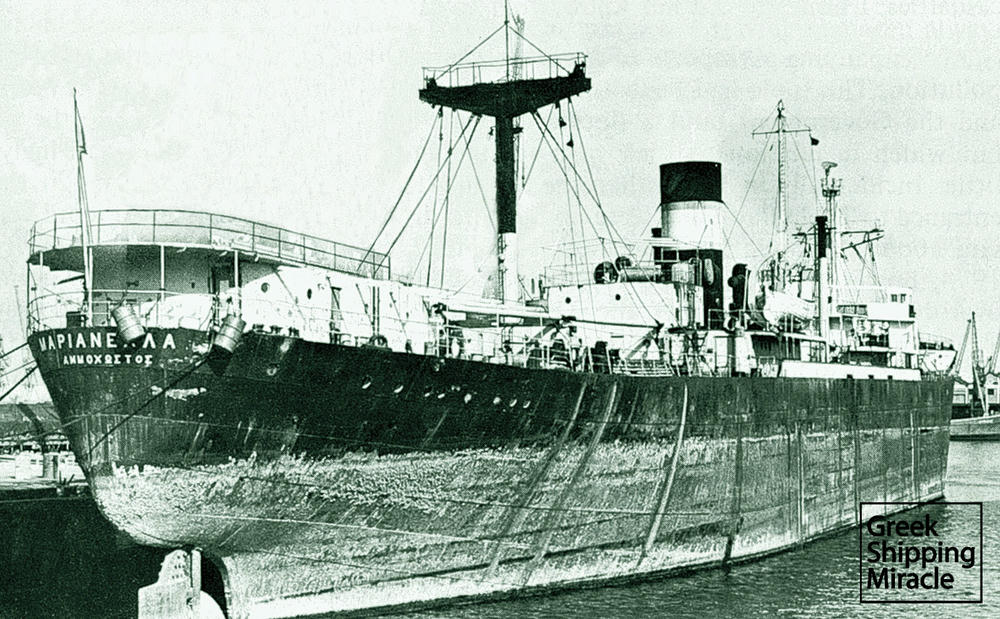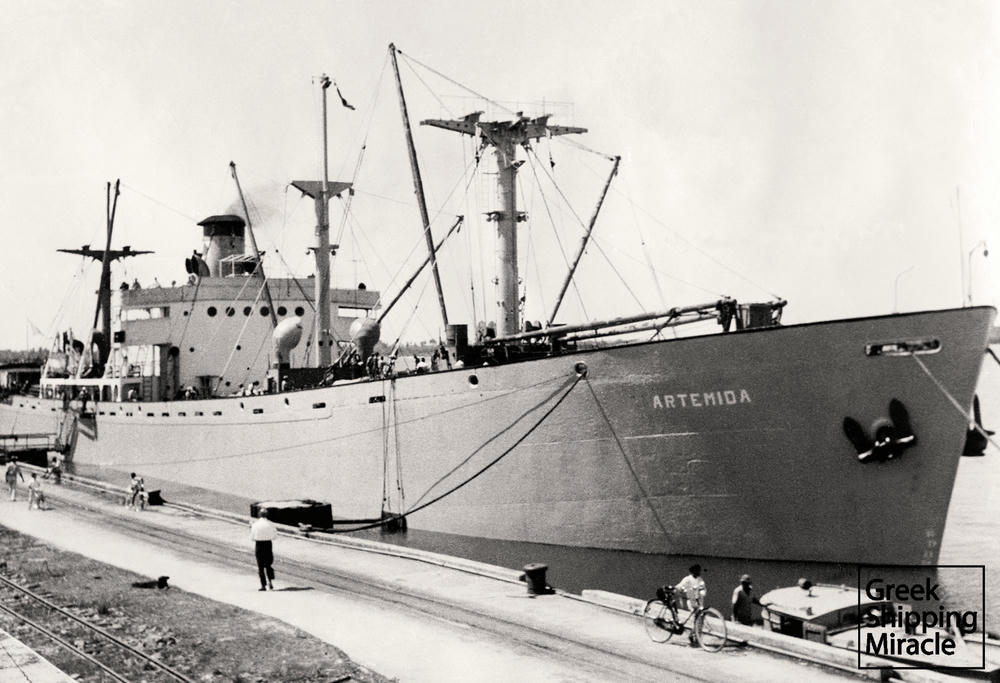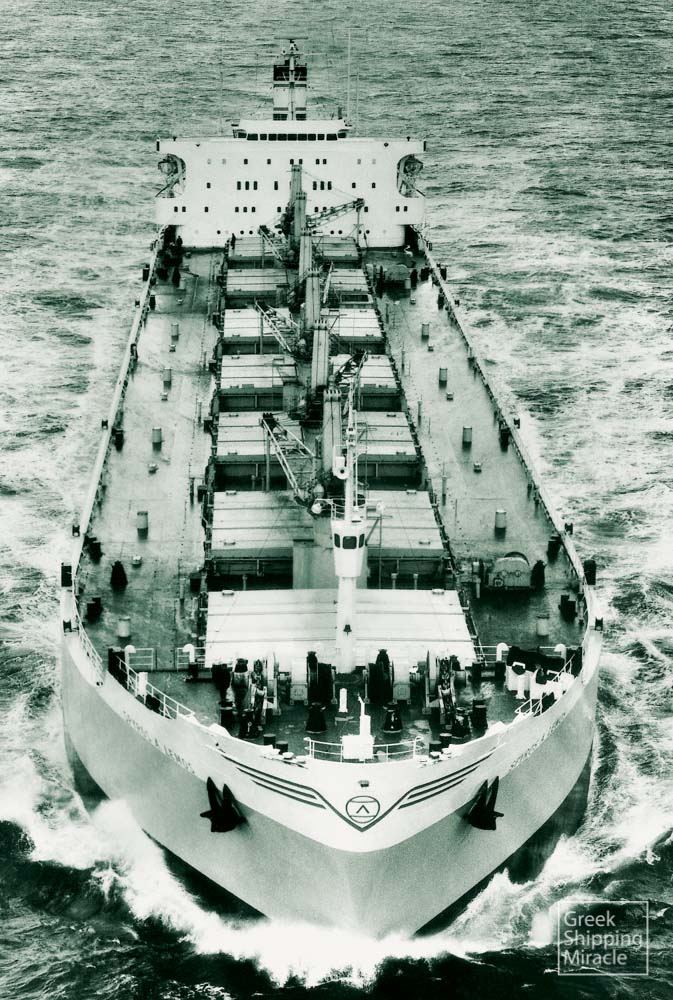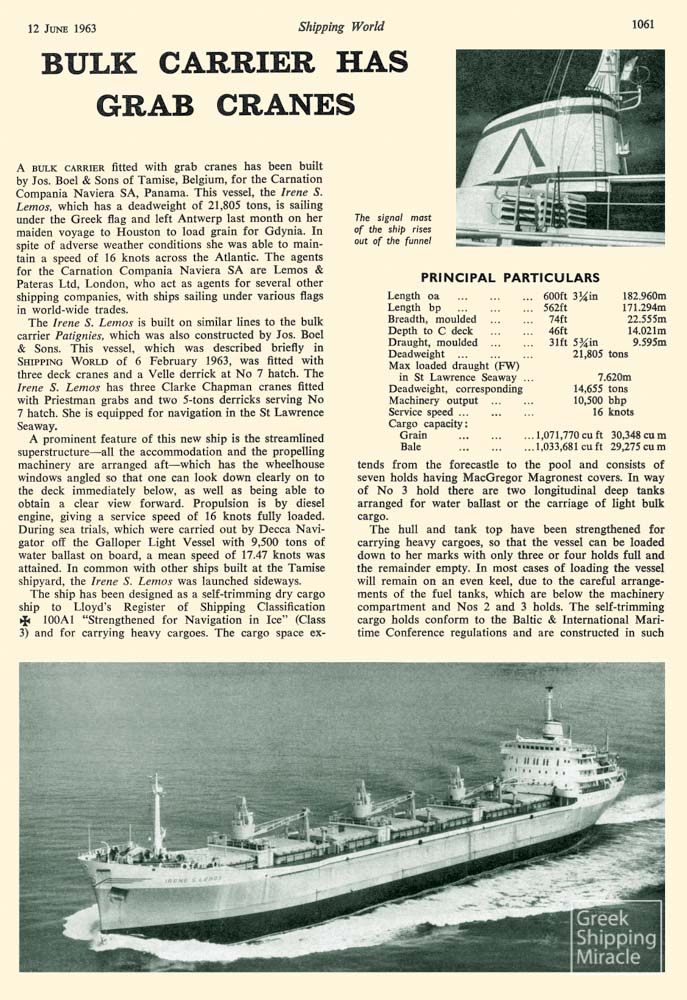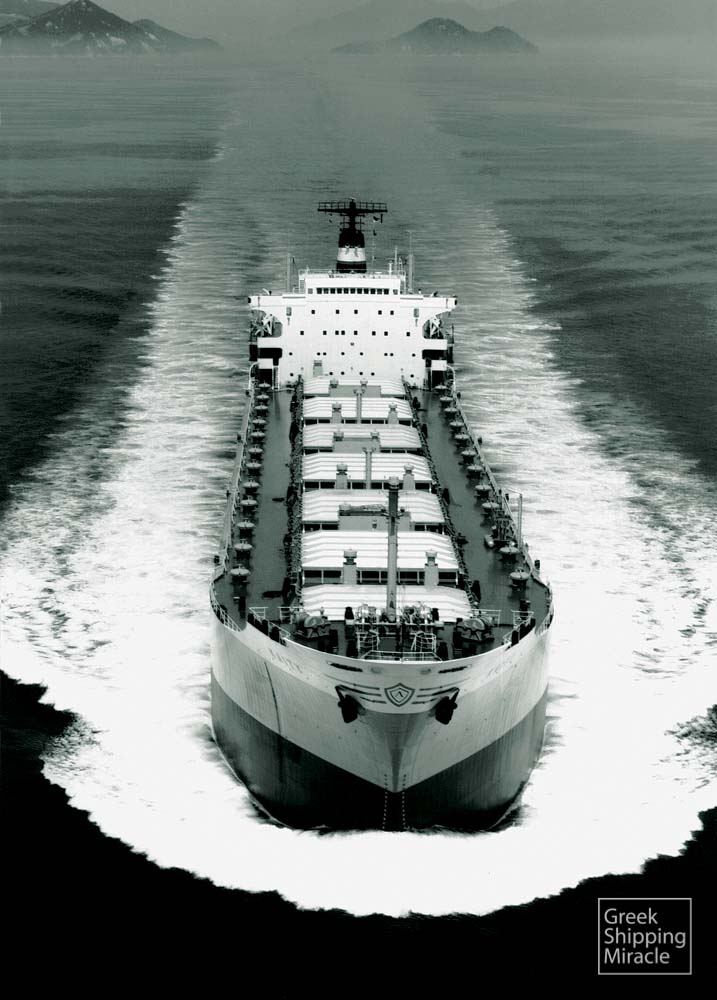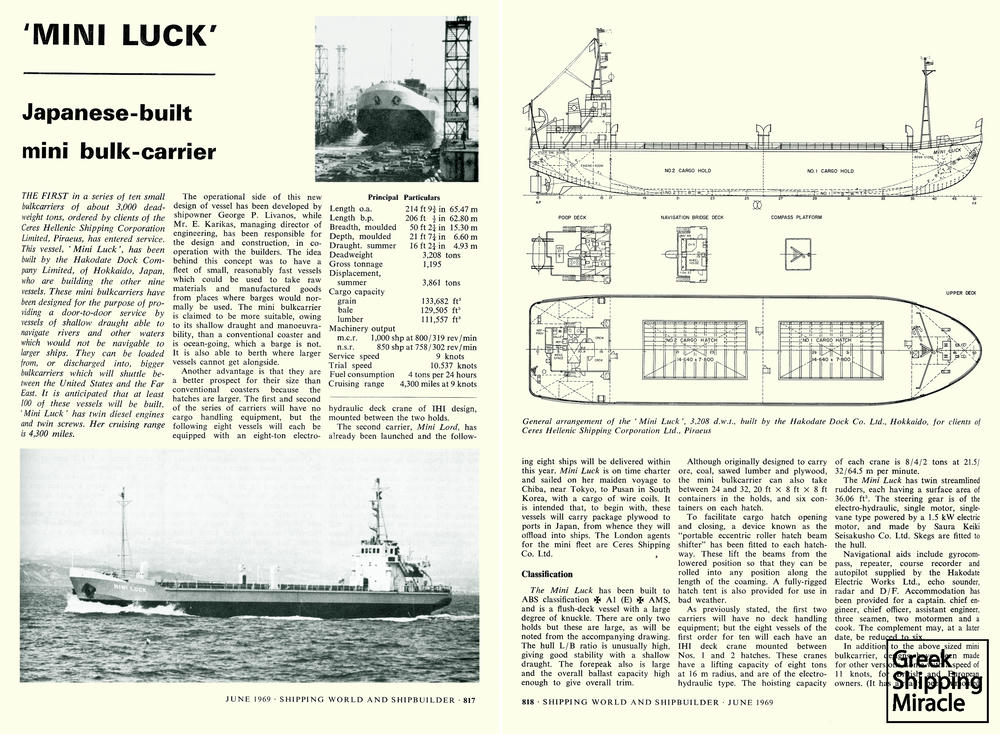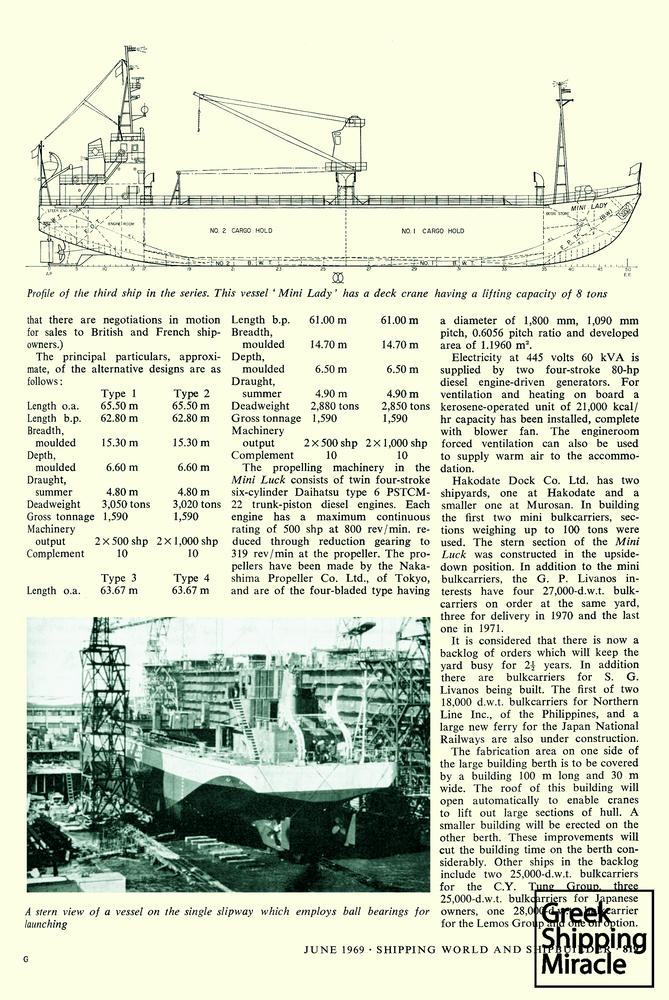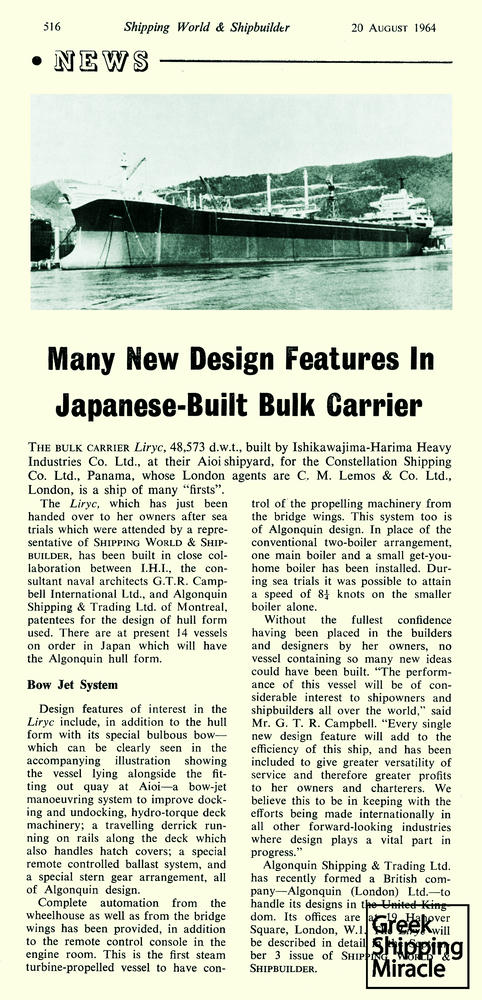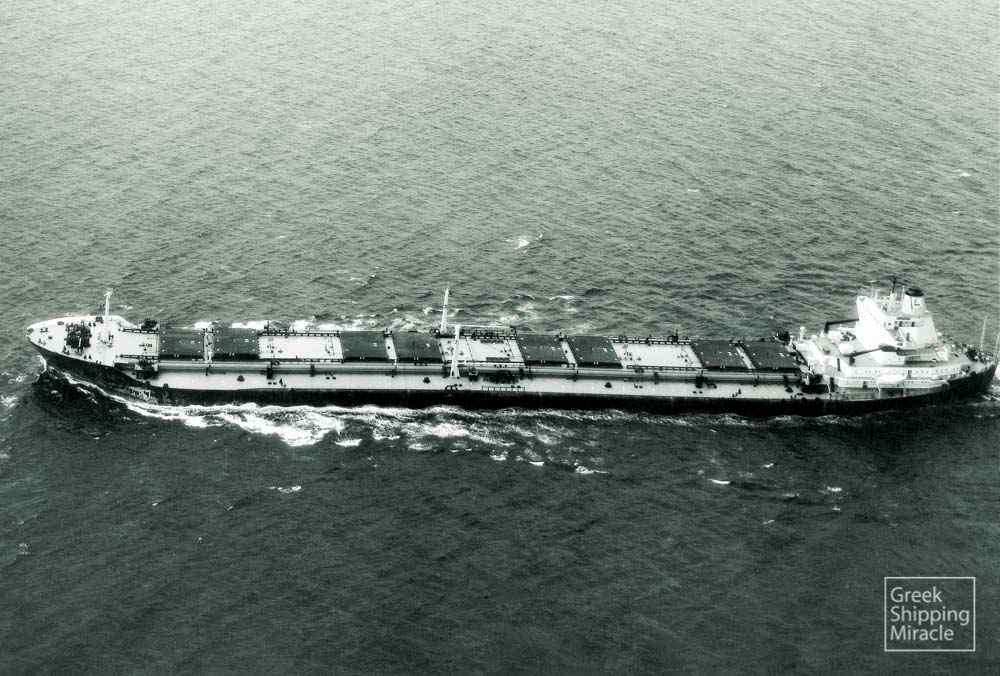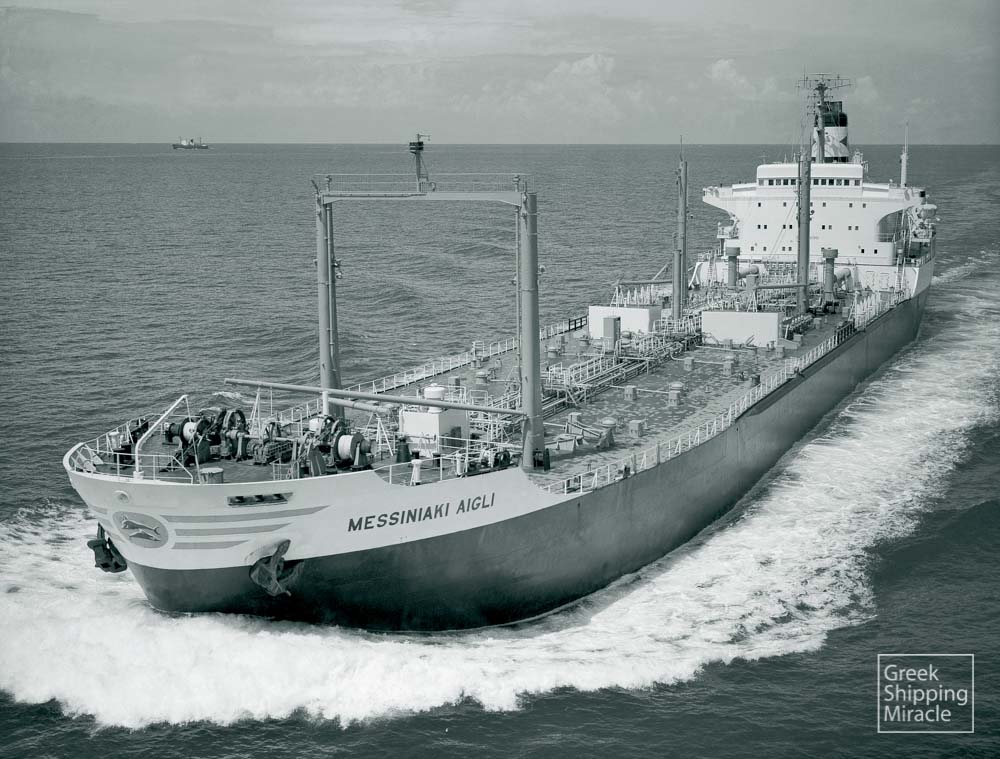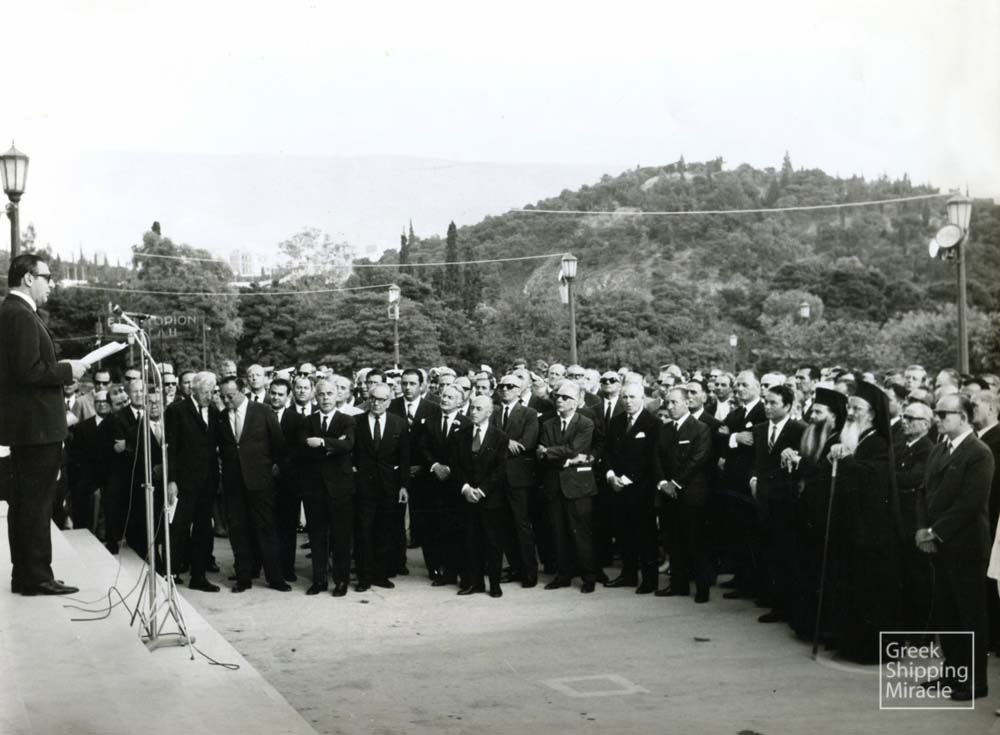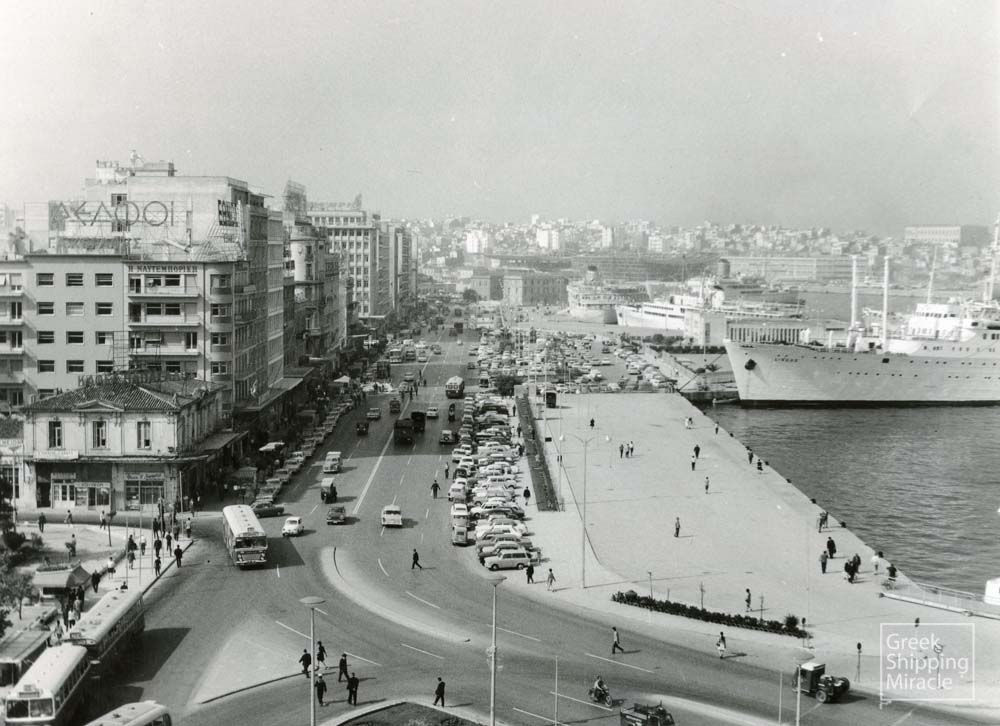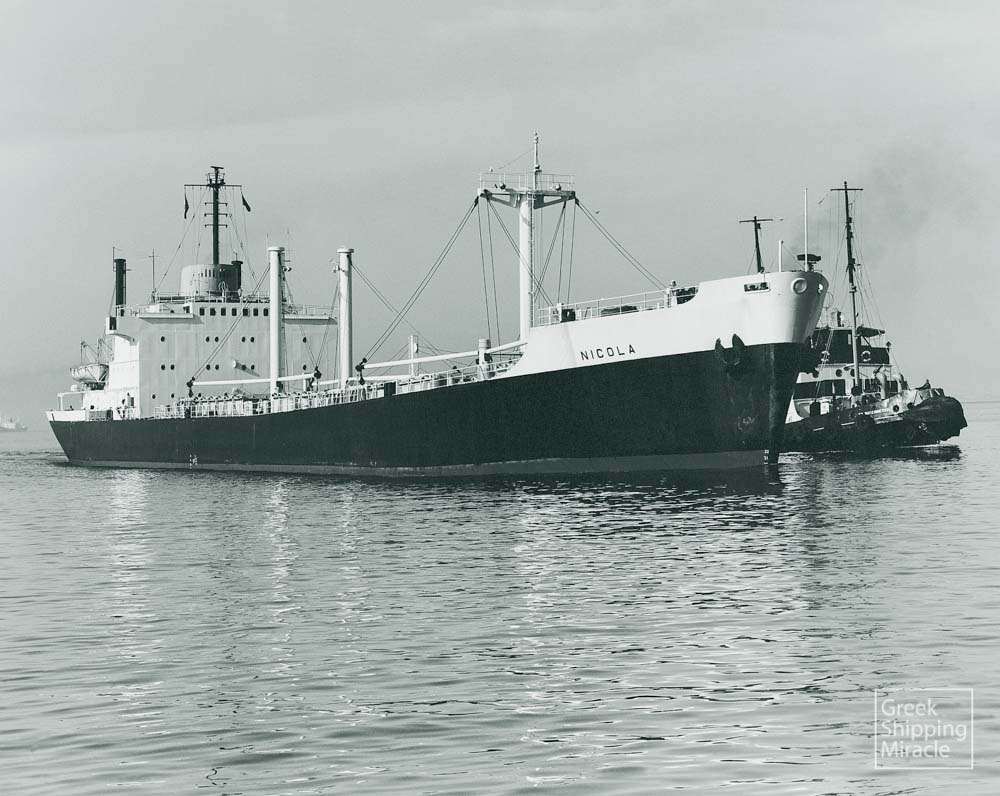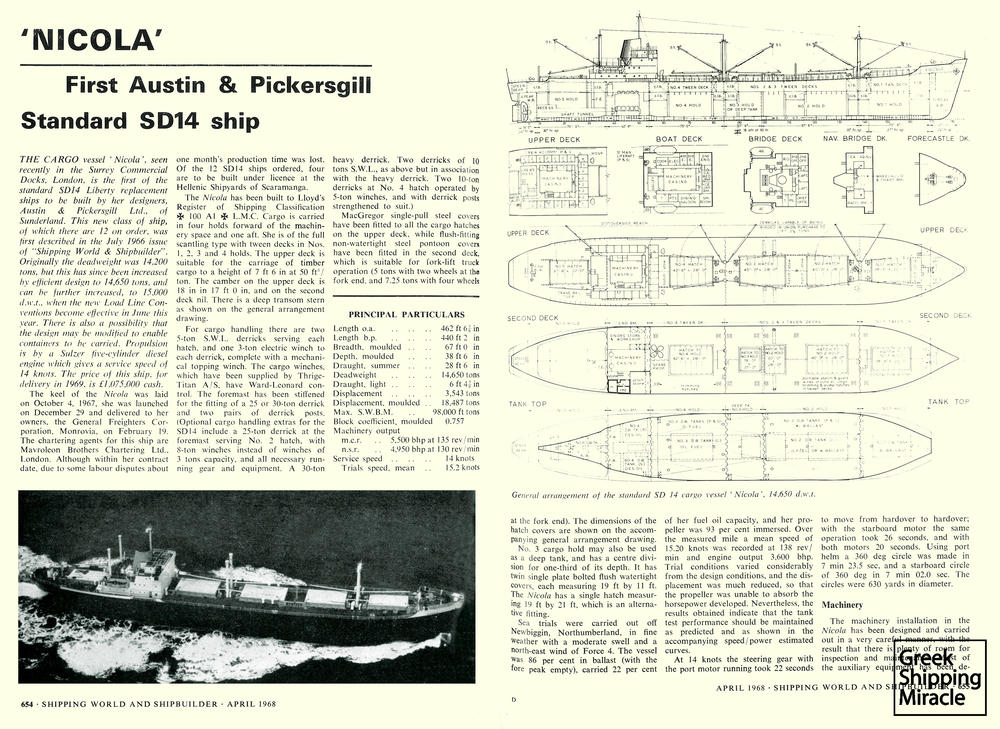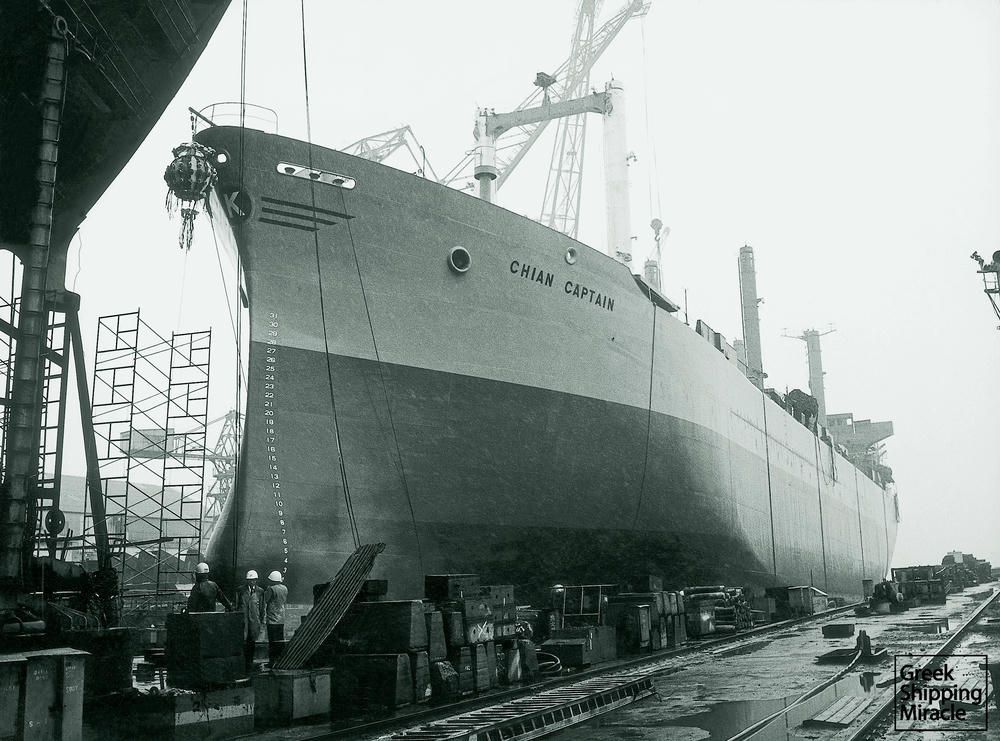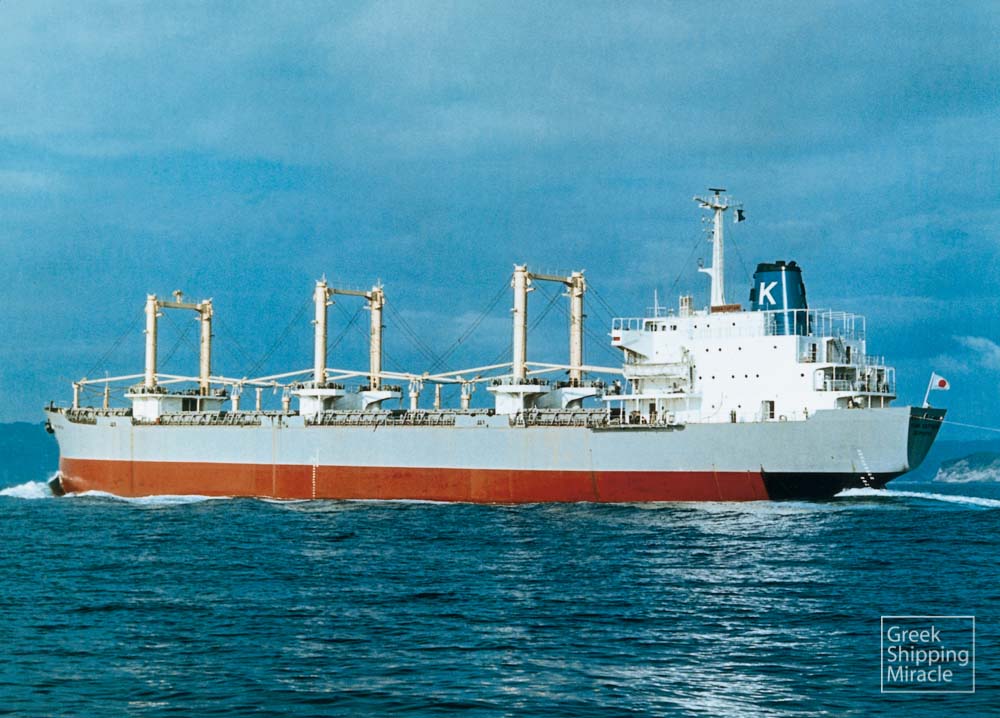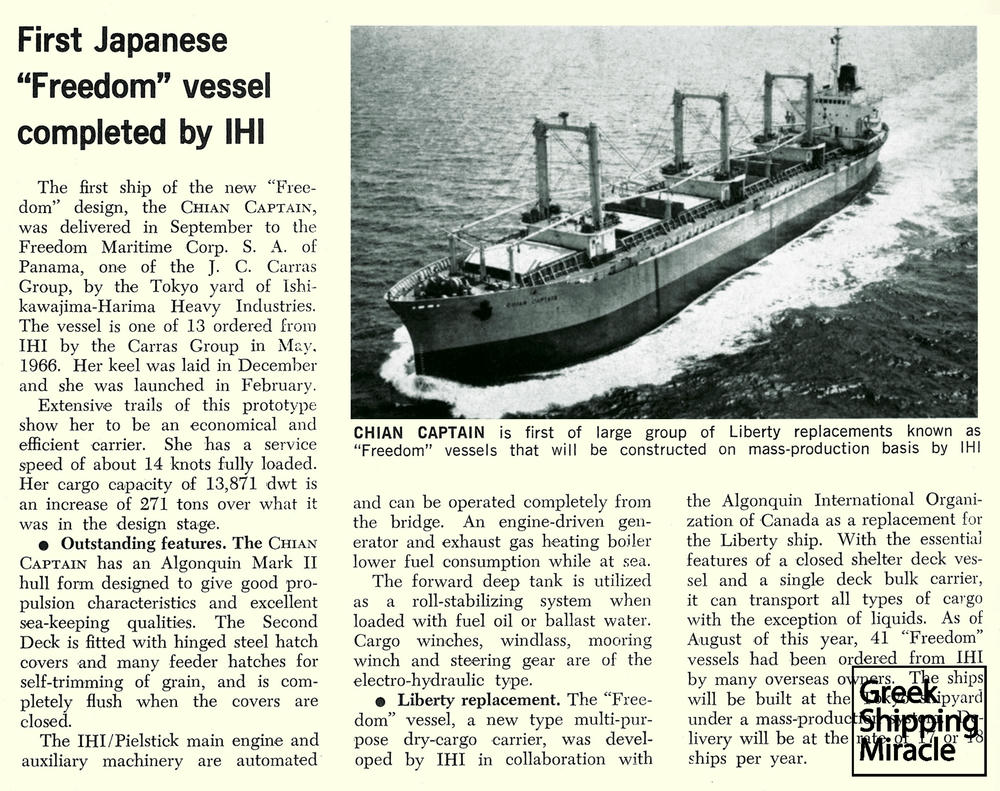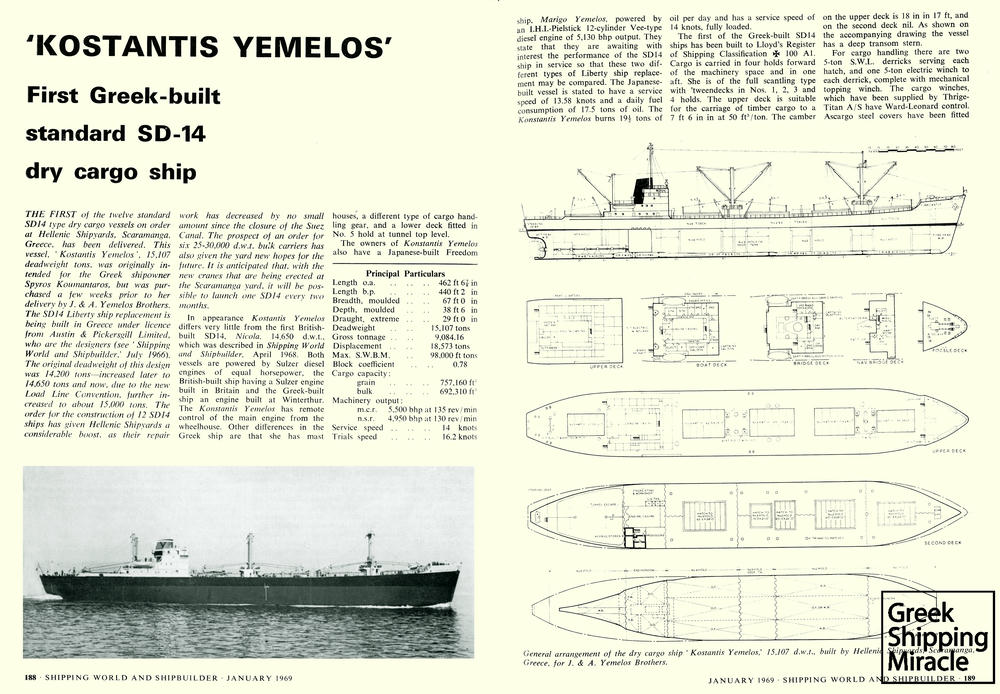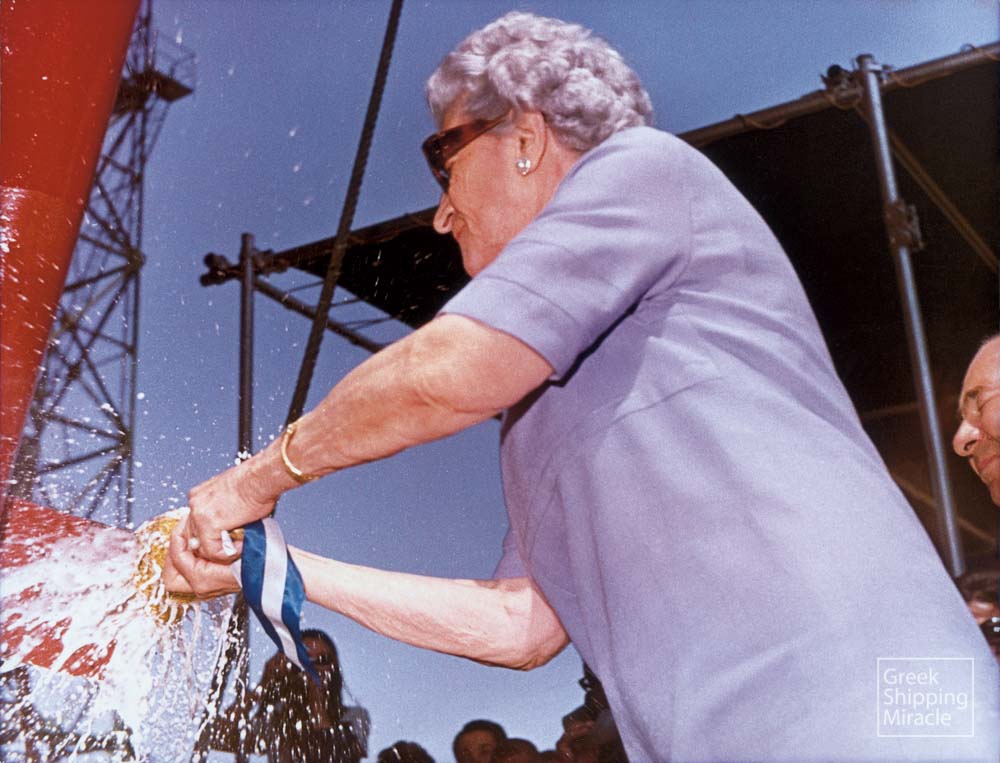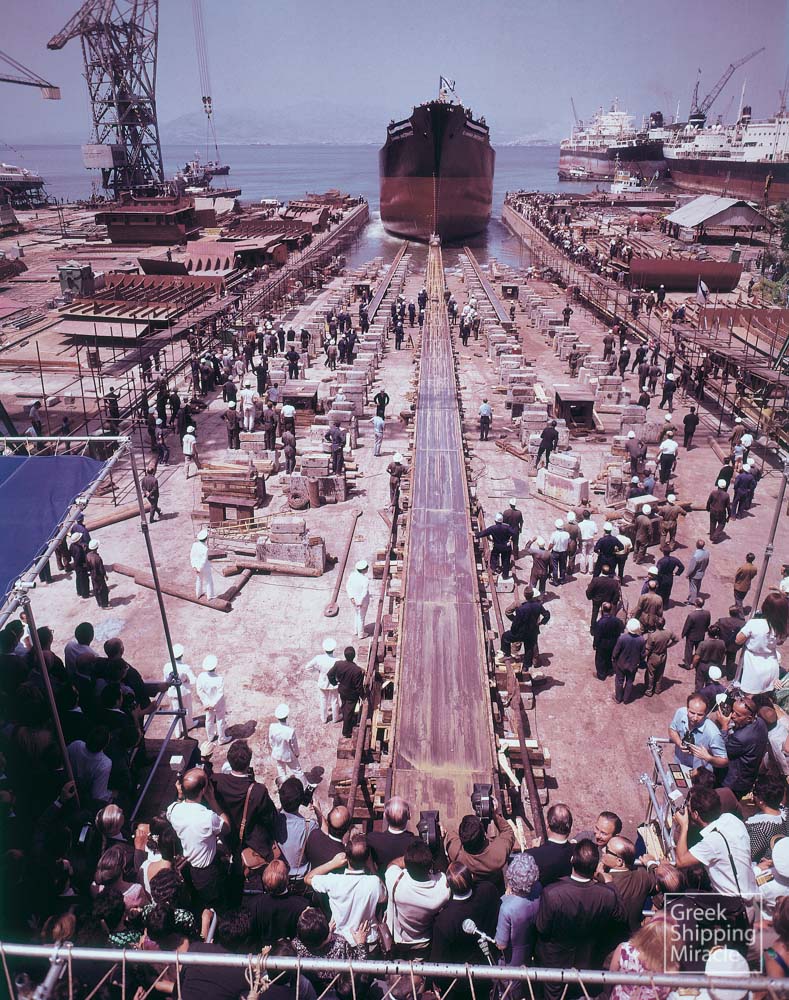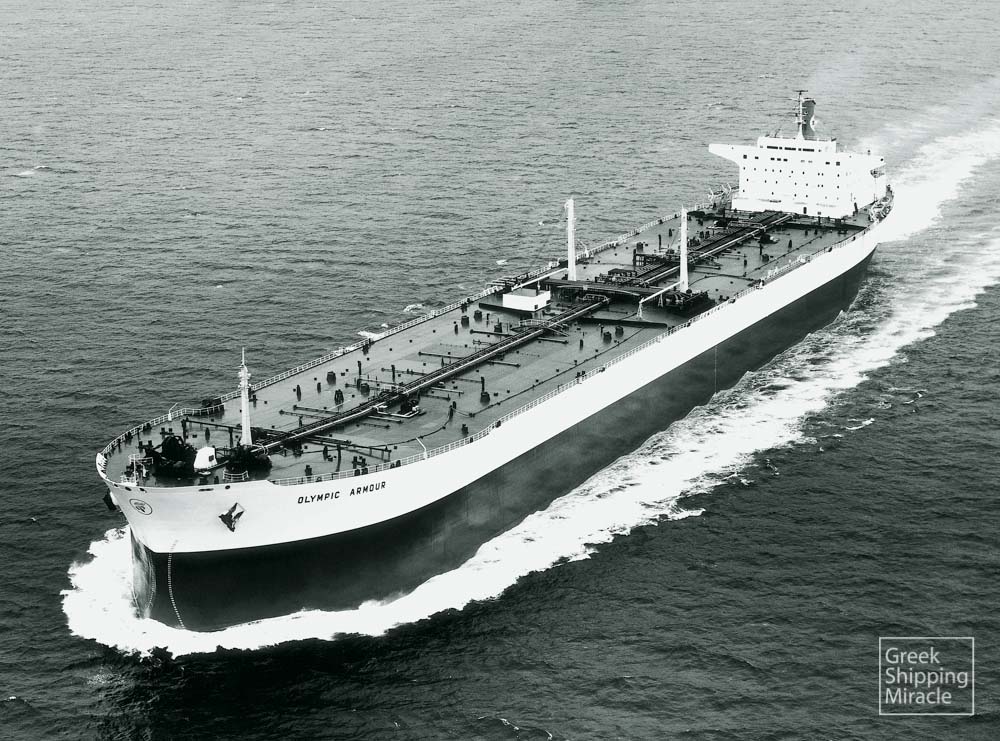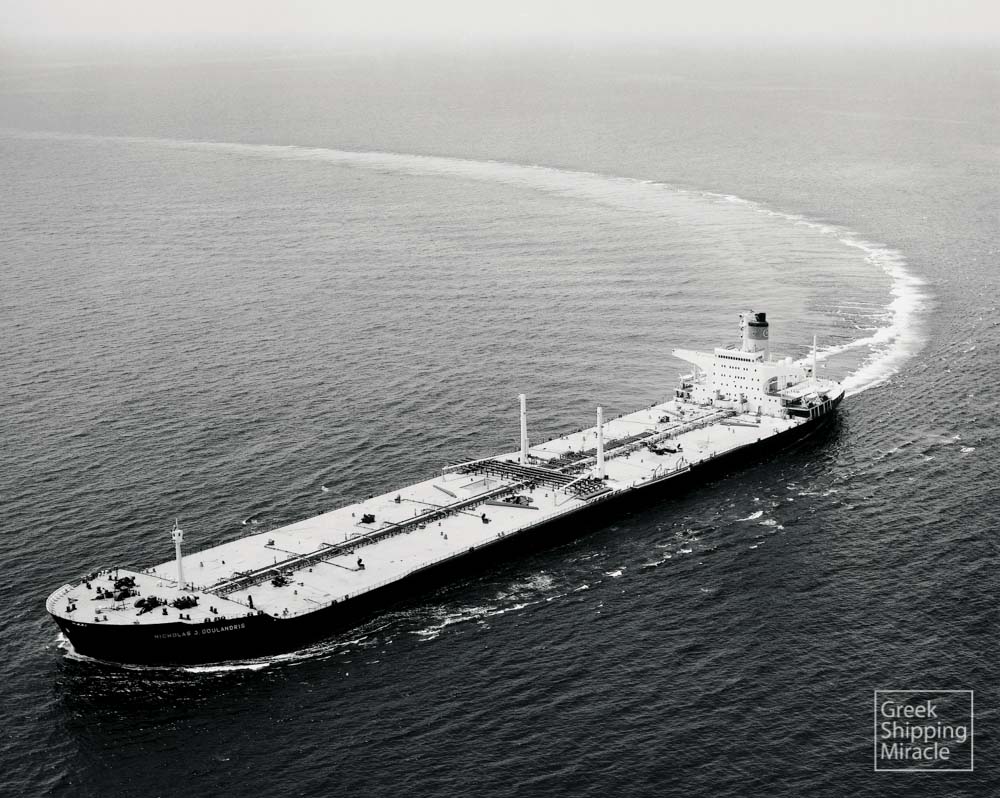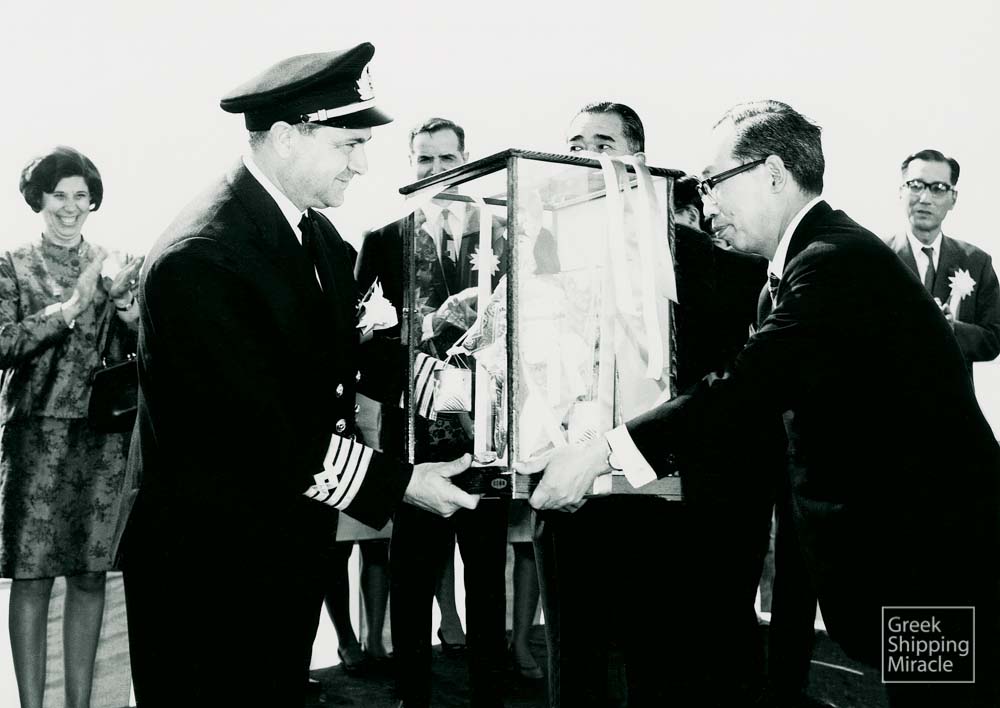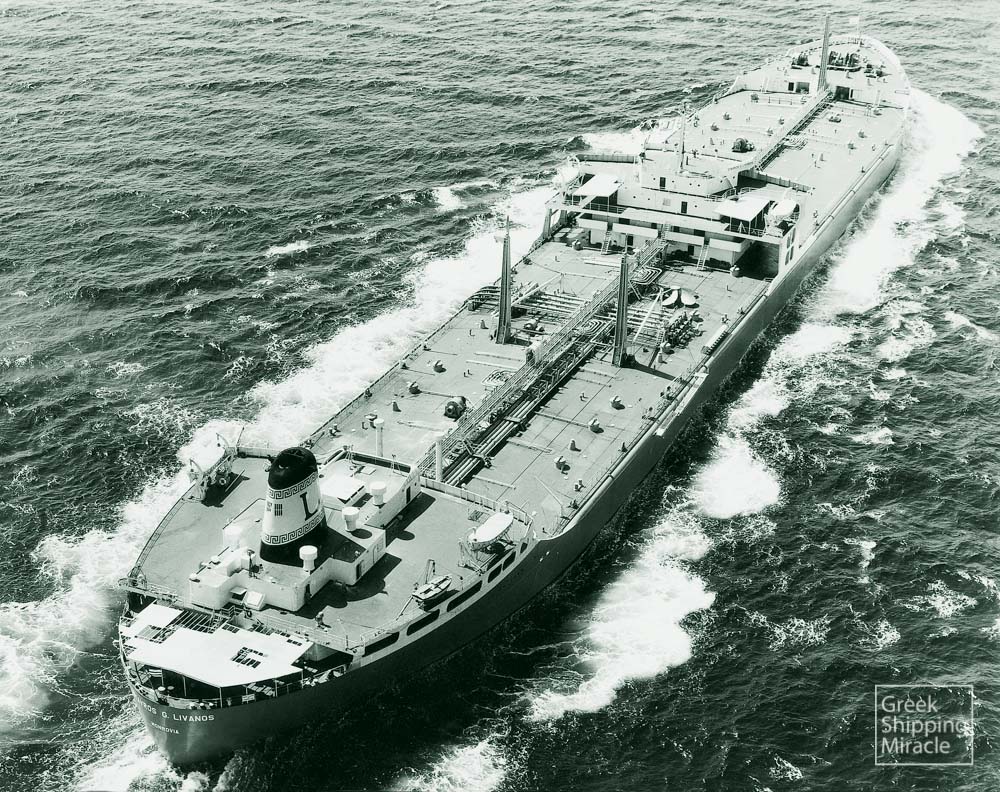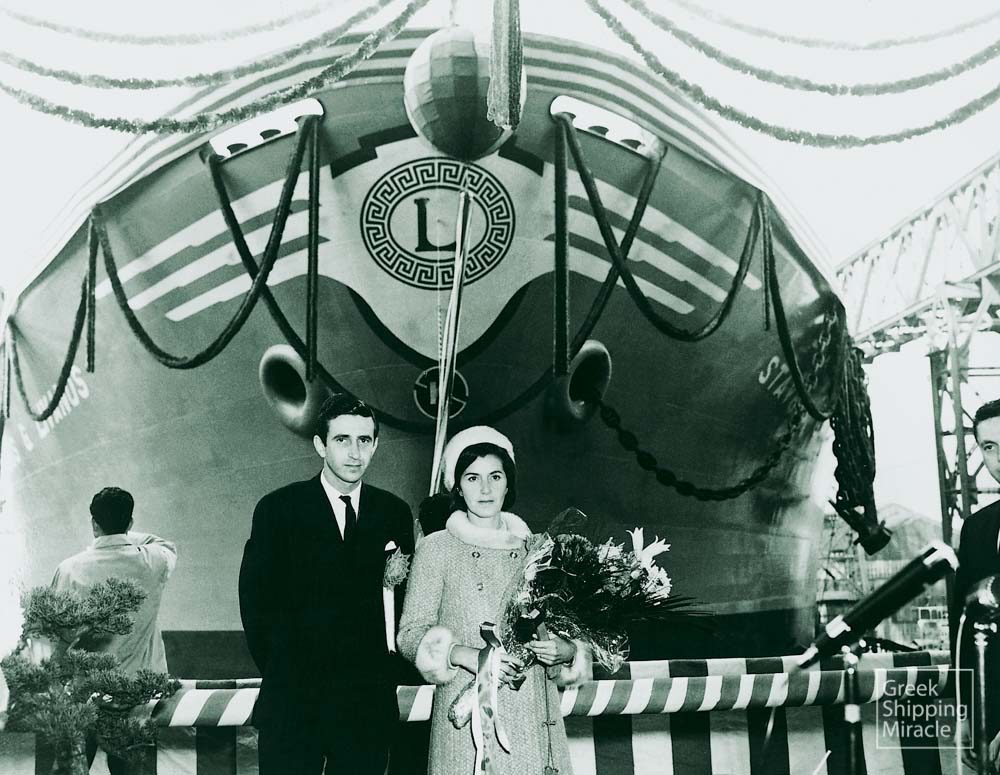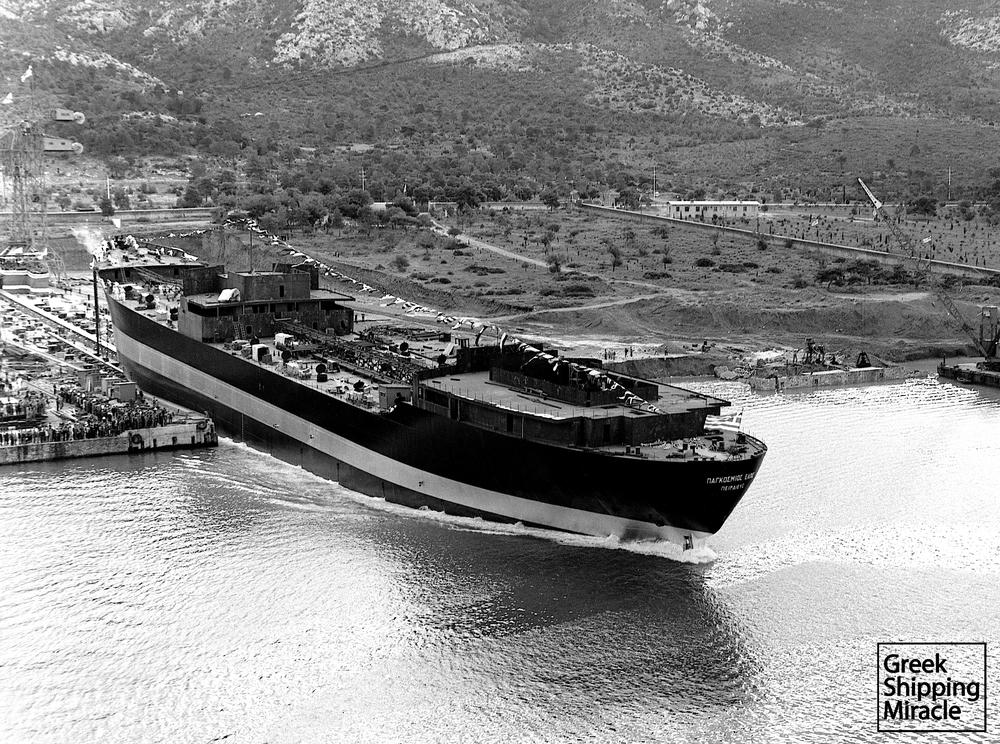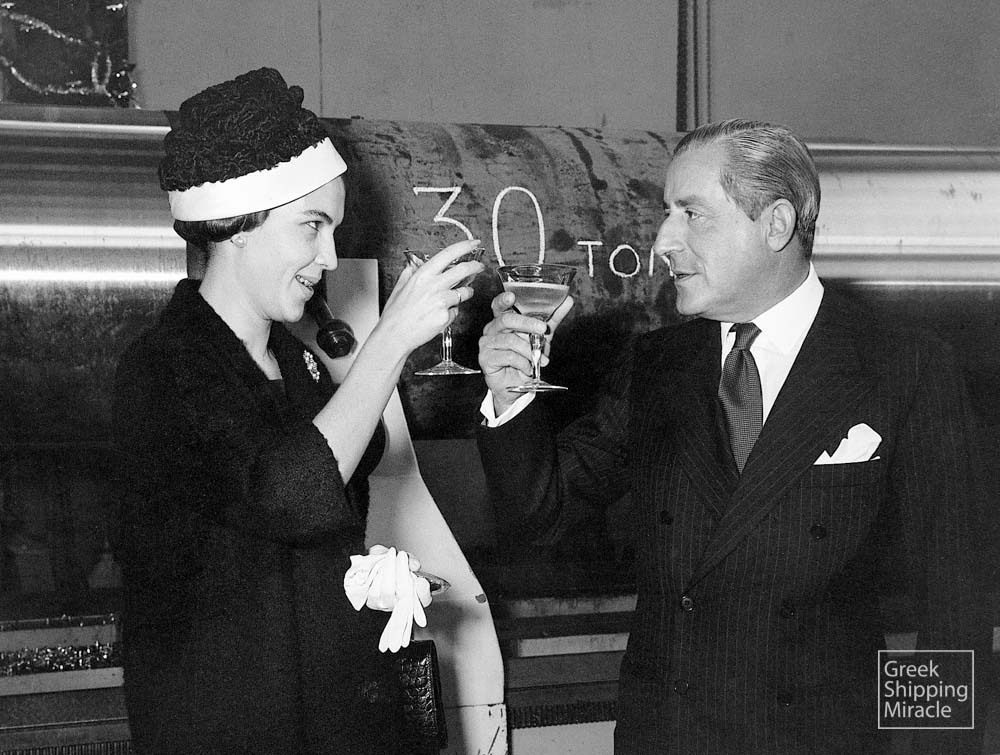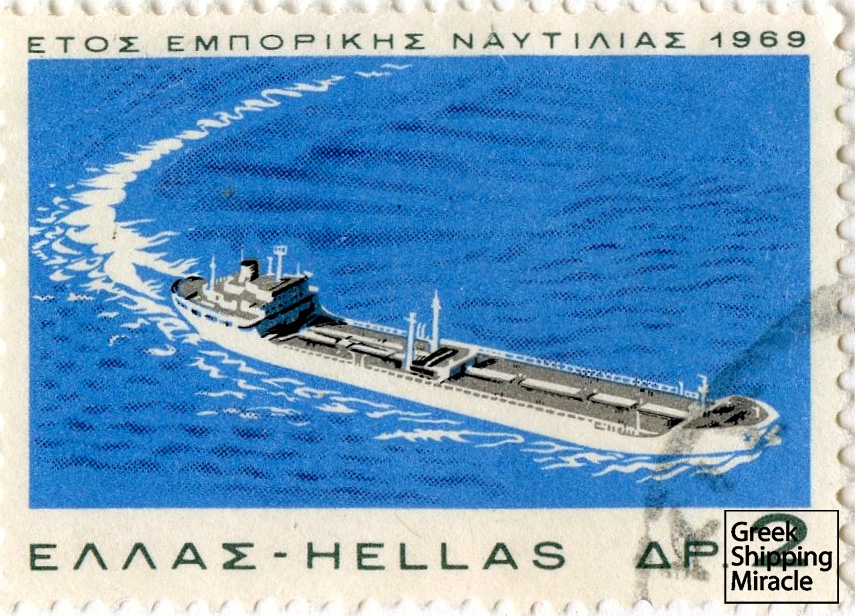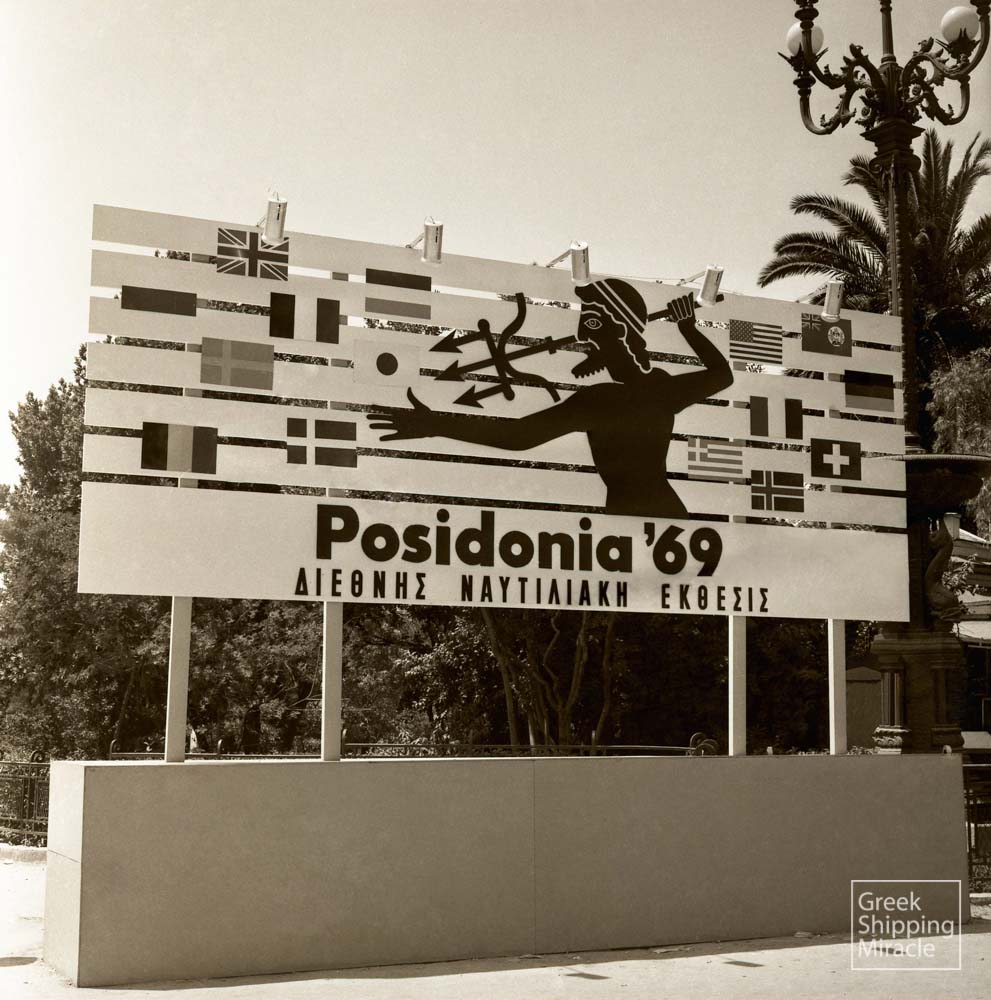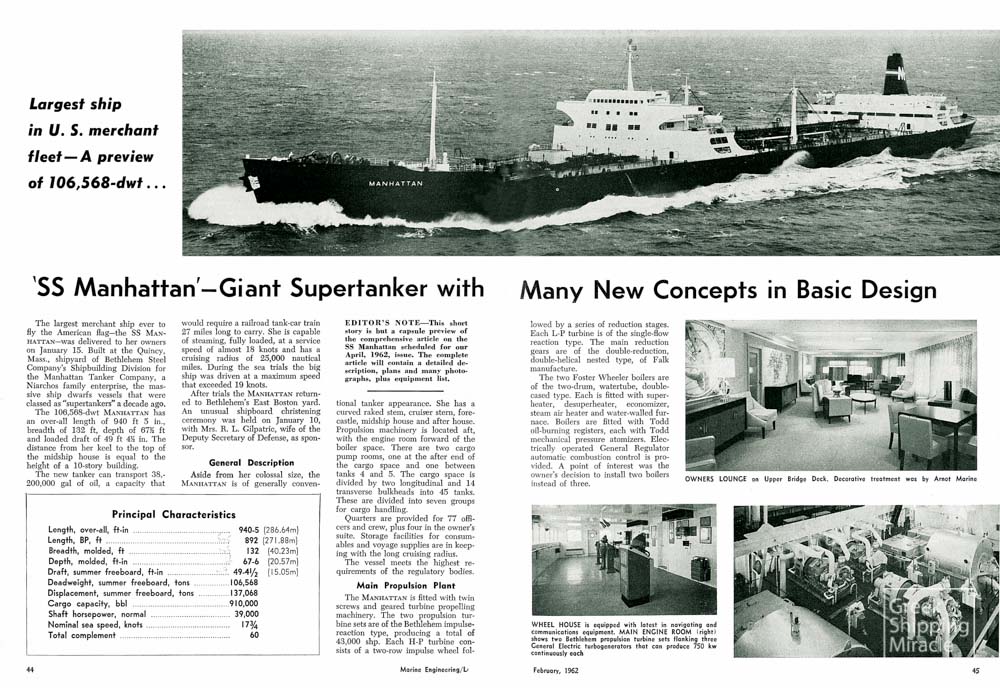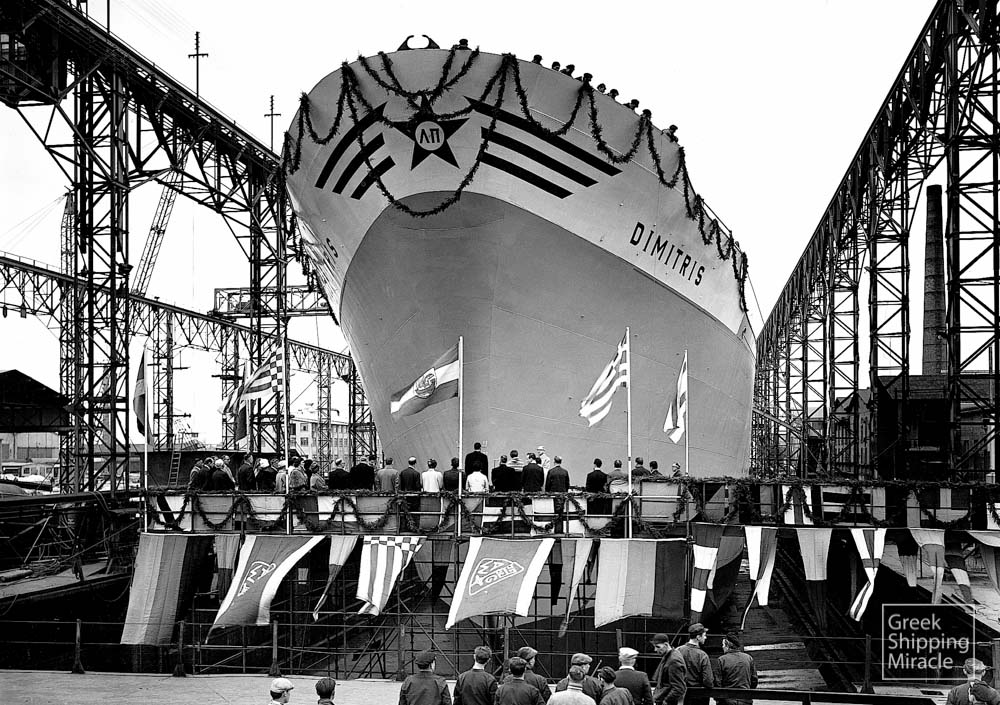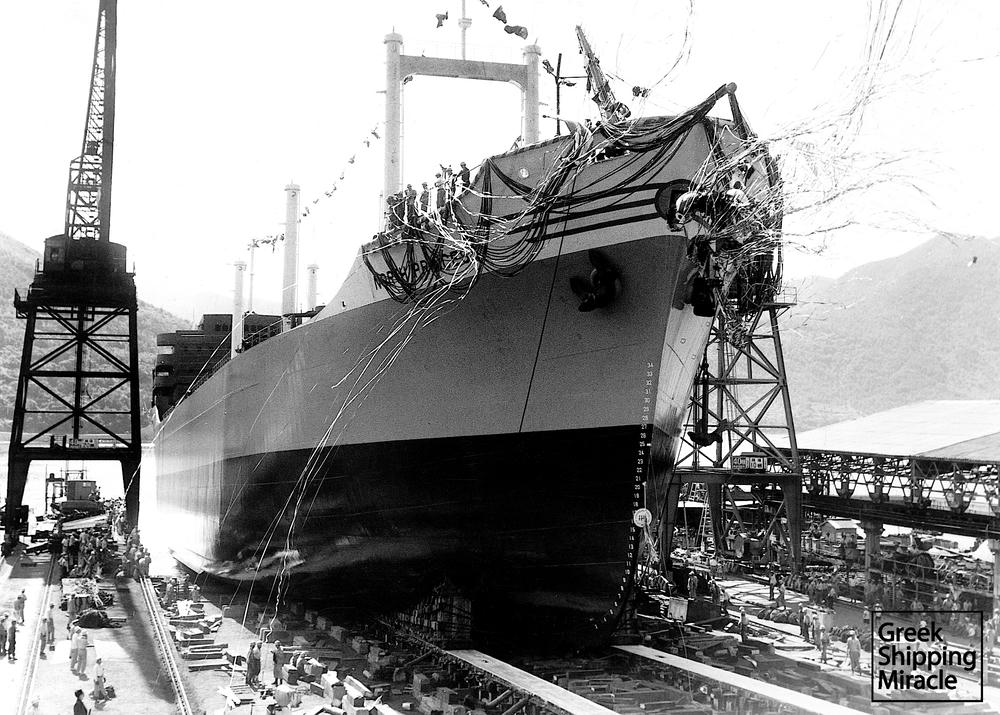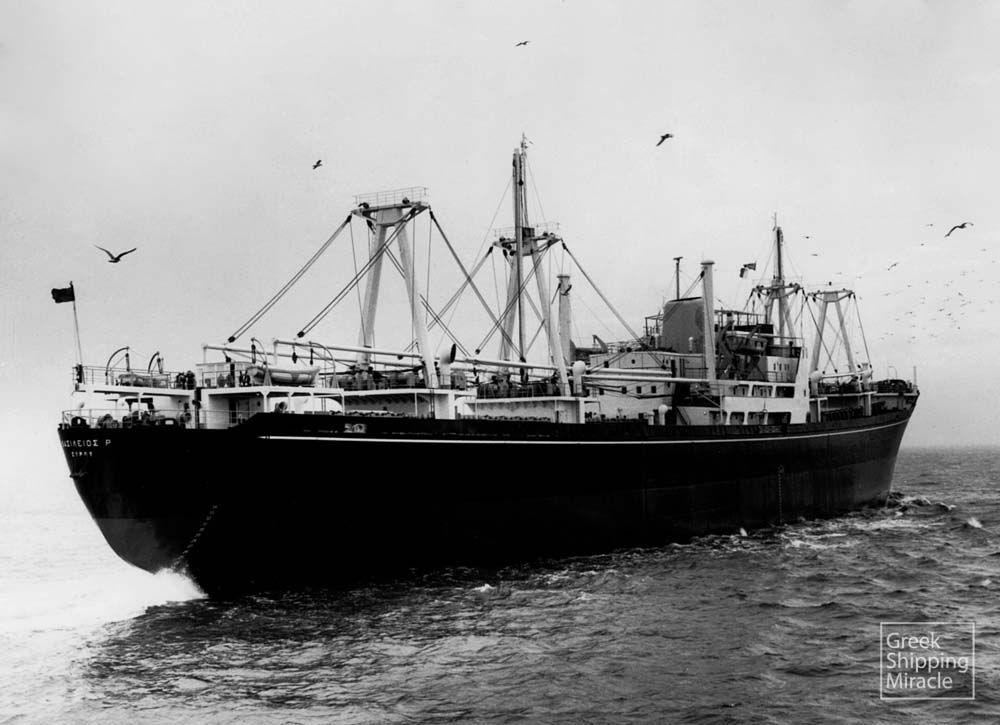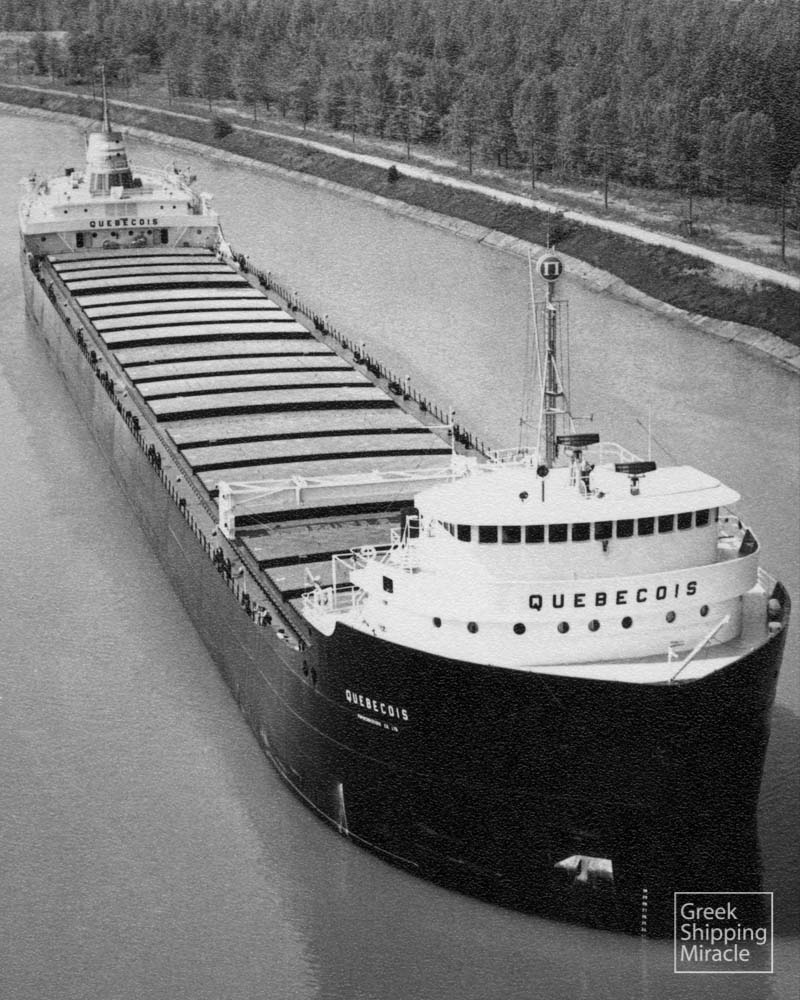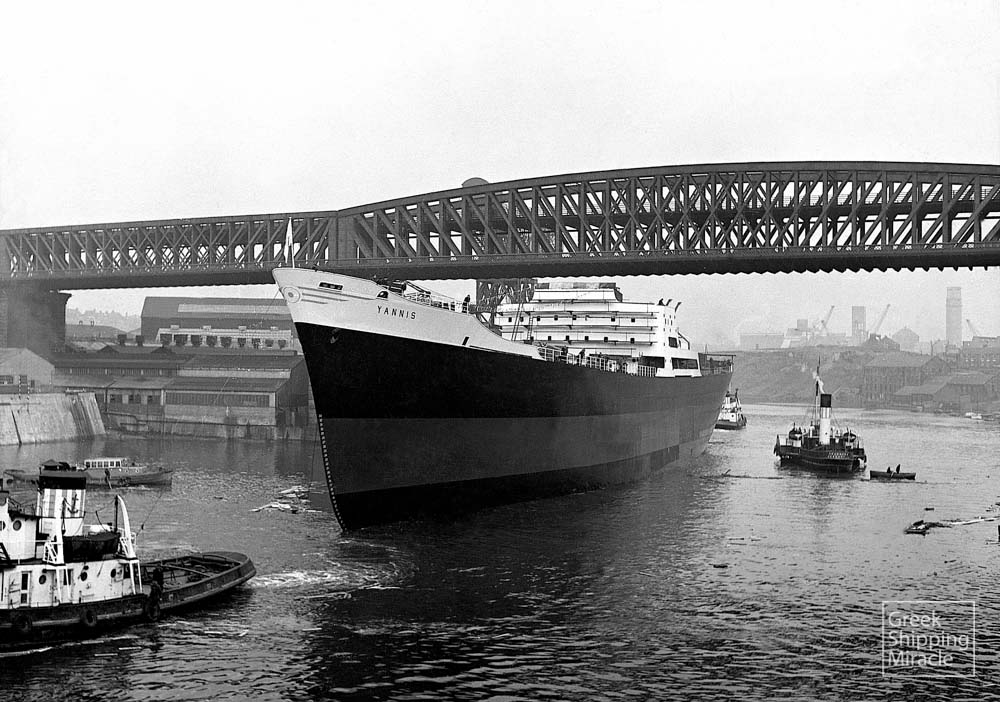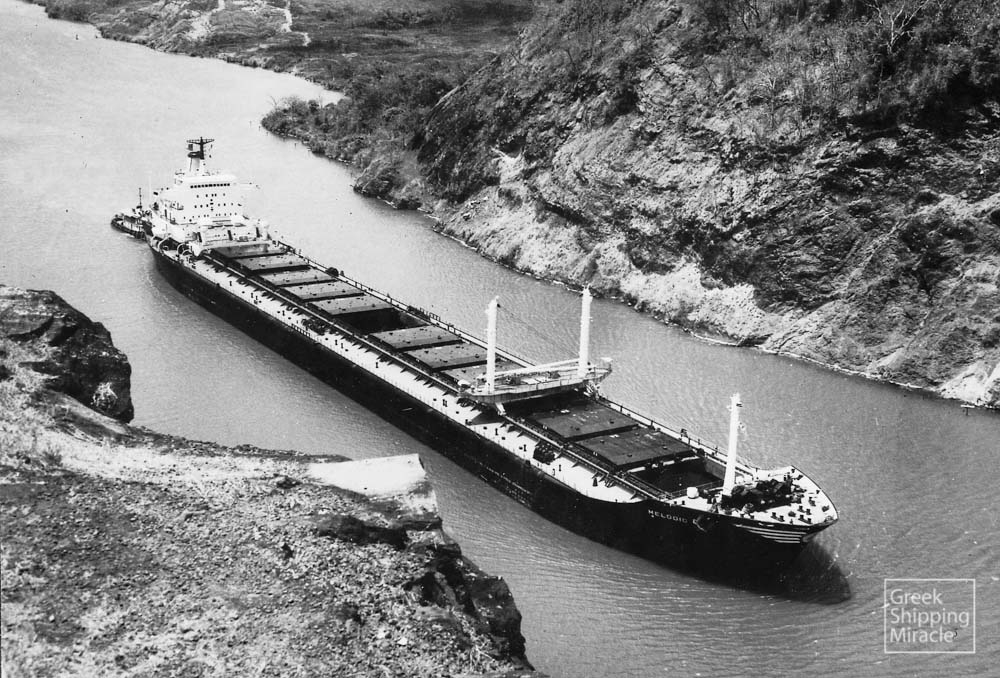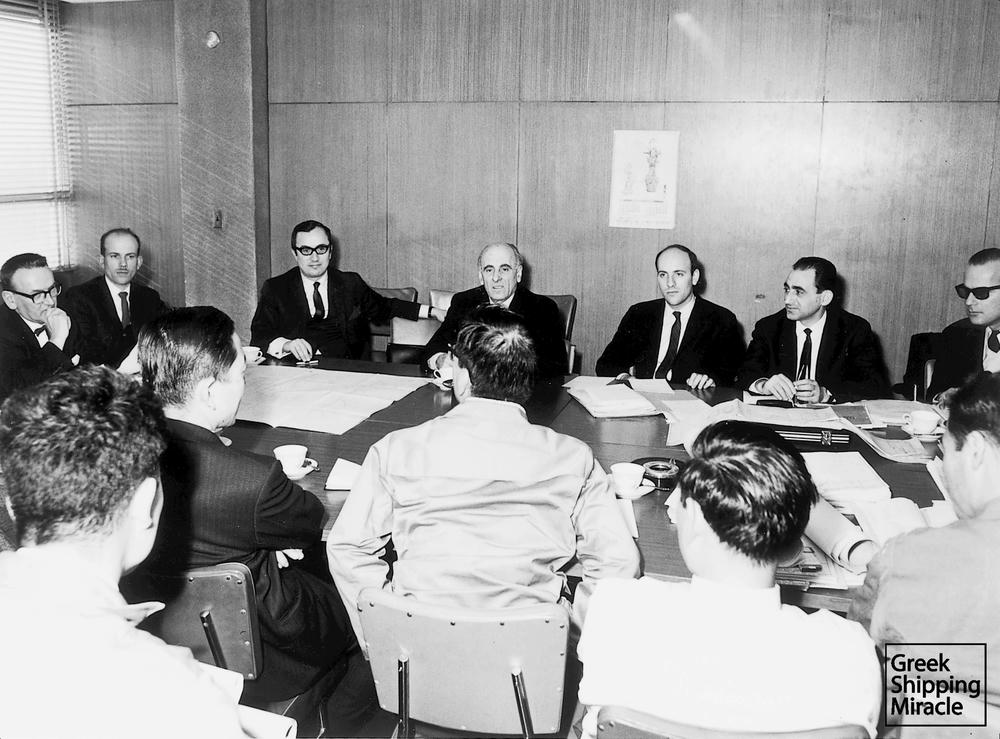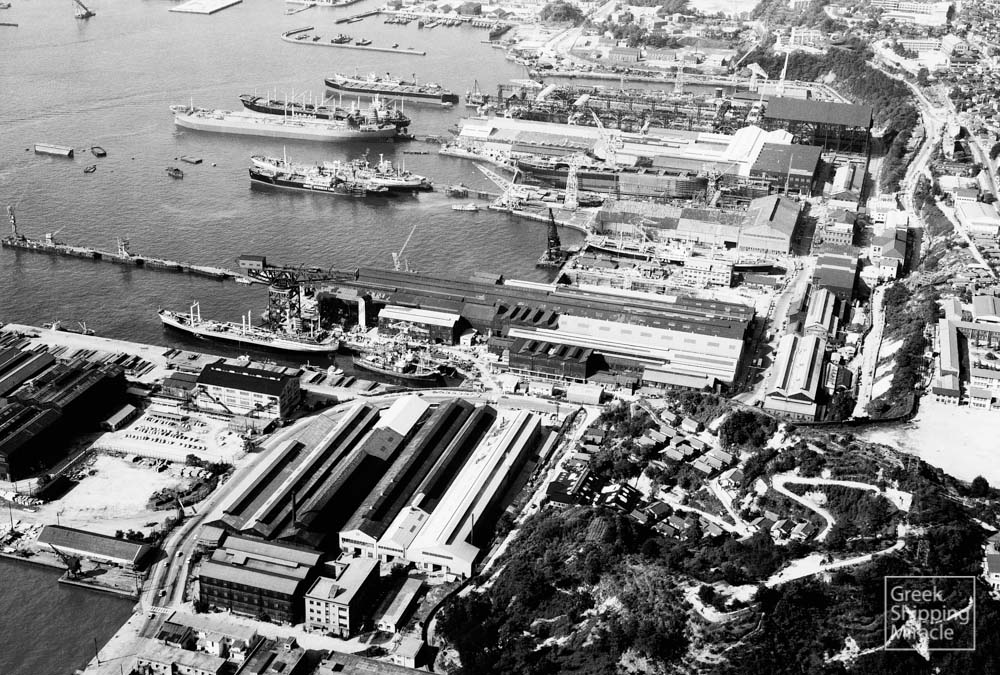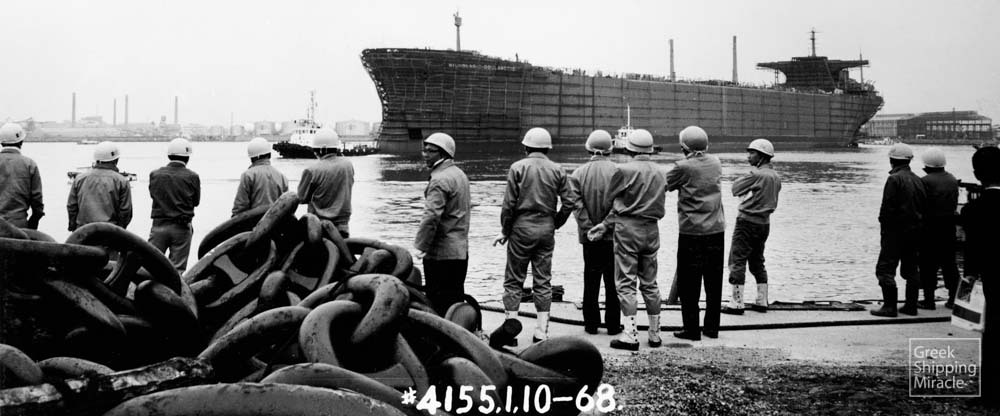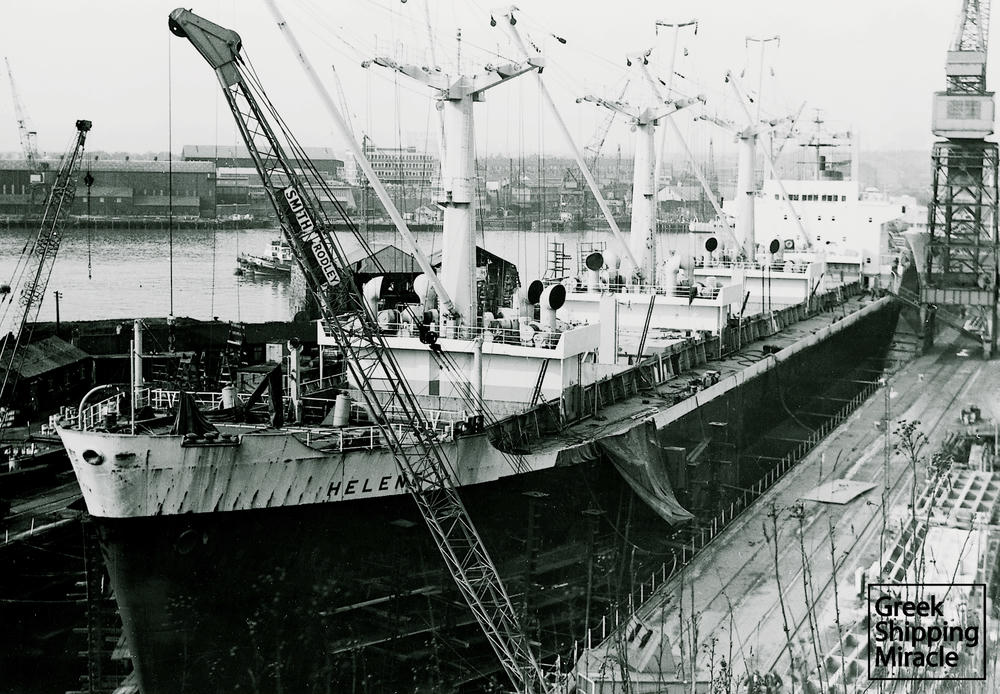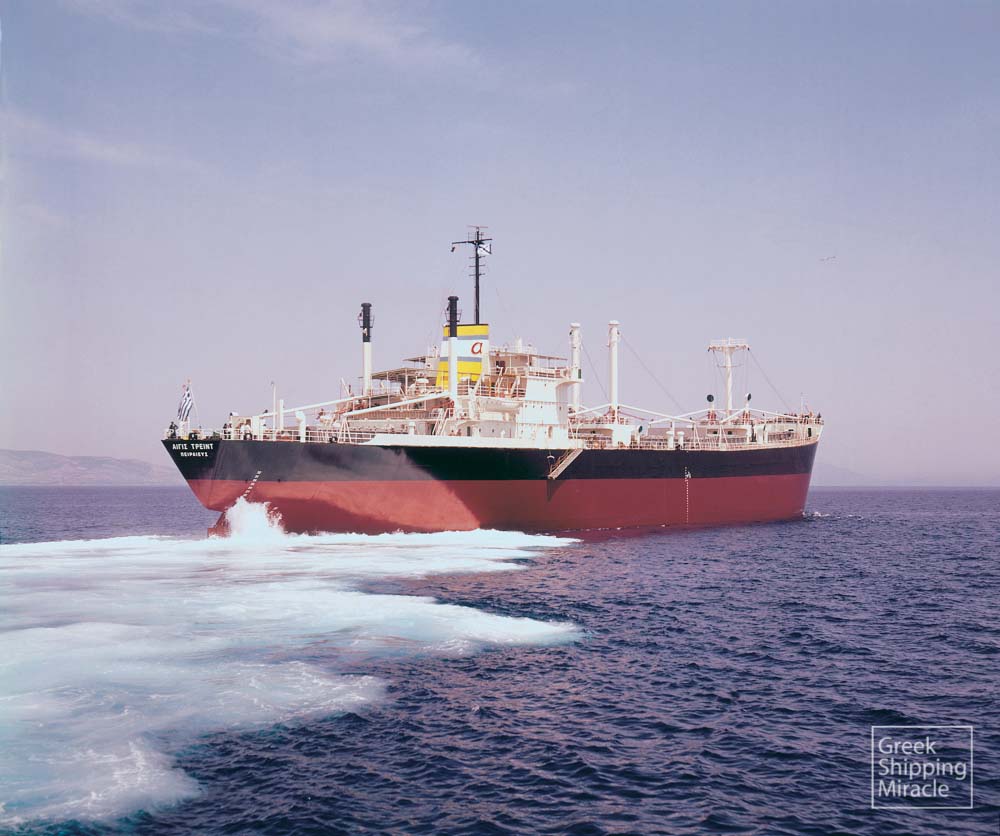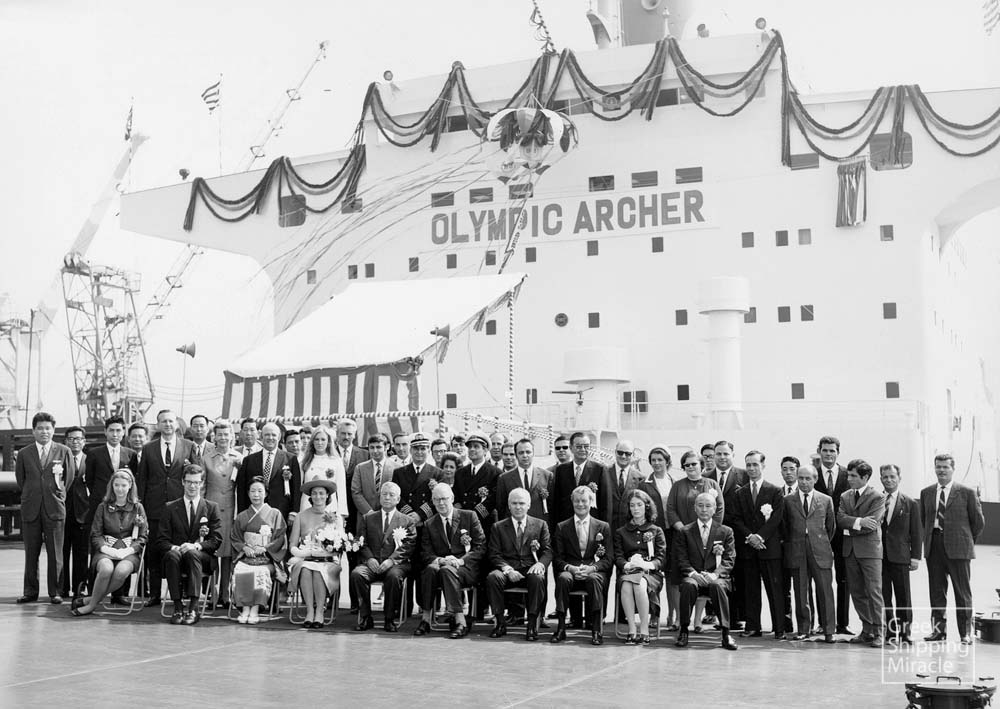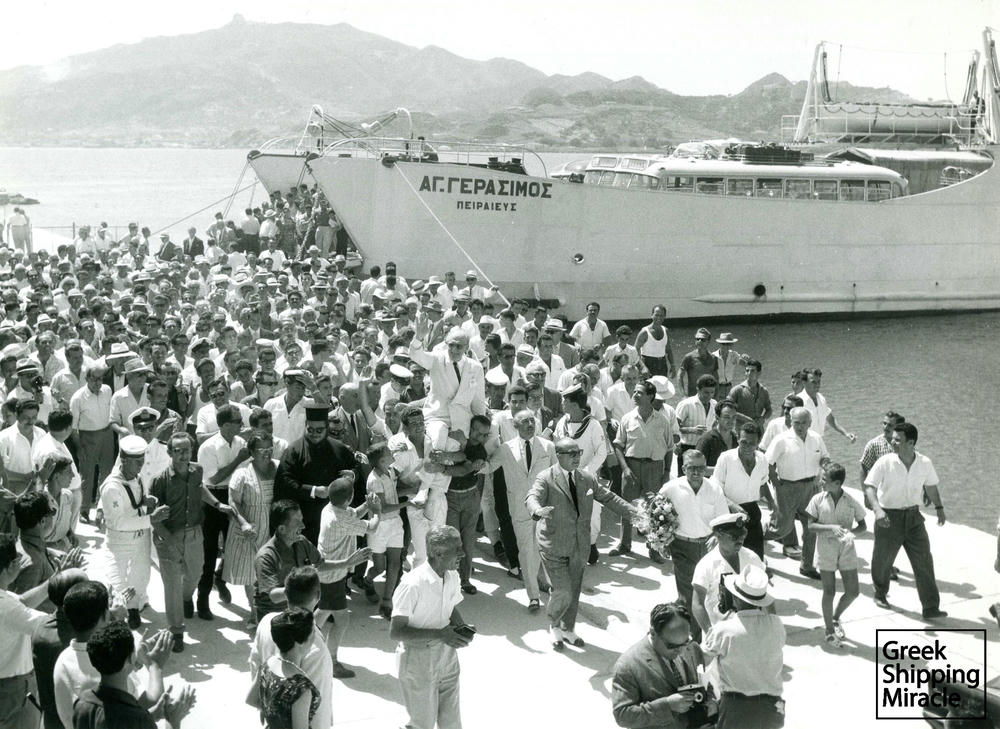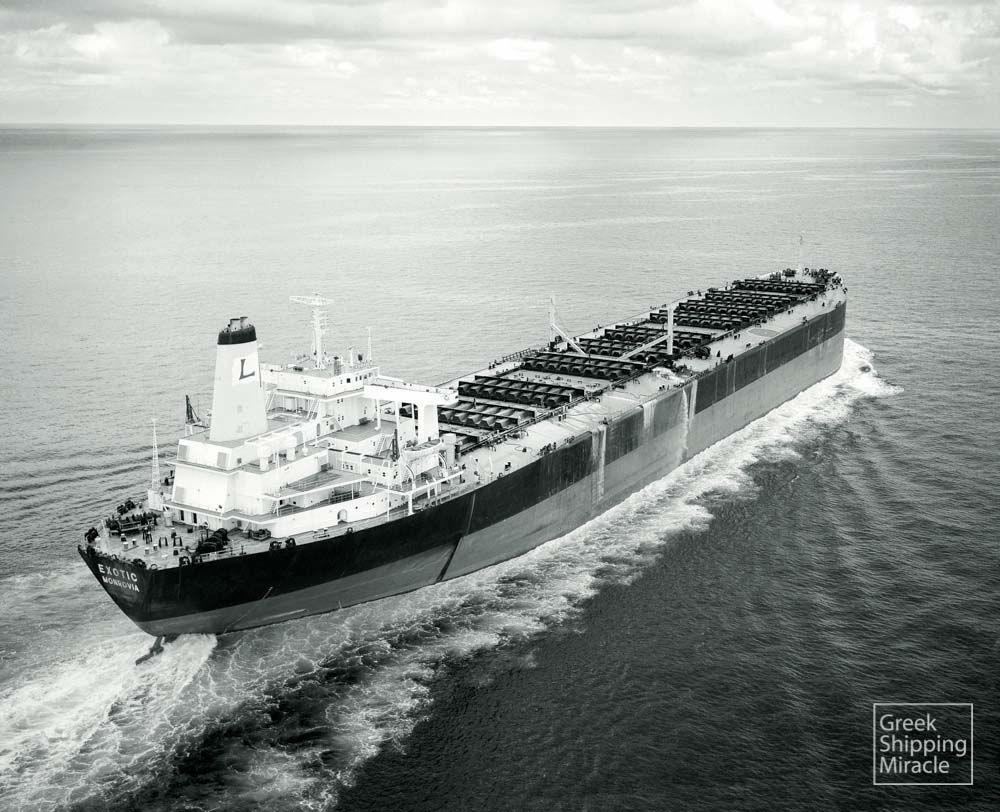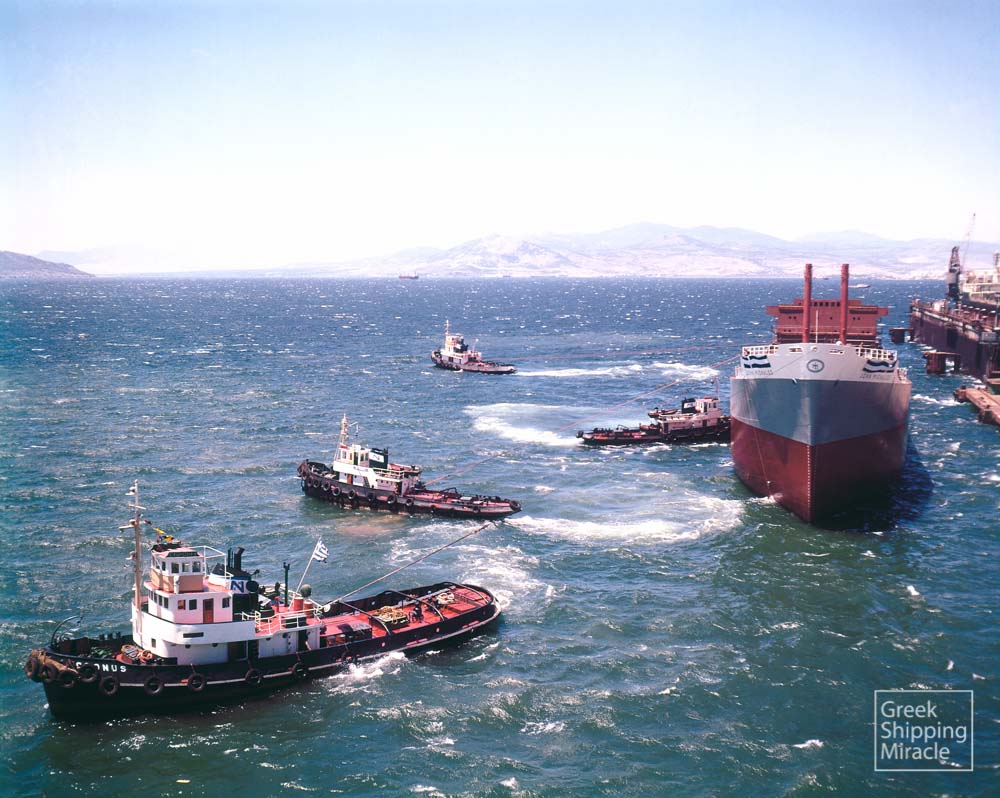Era of Crisis and Structural Changes
(1961-1970)
By 1961, following a 12-year period during which Greek owners built to order over 500 oceangoing vessels, their newbuilding activity had slowed down significantly. A slight improvement in the market raised optimism, but this feeling soon faded away. Nevertheless, the process of strengthening the Greek ship registry was well under way, despite the fact that the state was not operationally ready to correspond to the needs of such a large fleet in the arena of international competition.
However, the political stability of the previous eight years that had decisively contributed to the development of the country, especially through significant investment in major projects, was shaken. In October 1961, Karamanlis’ party was re-elected, but the victory was strongly disputed by the opposition. When the latter’s leader, George Papandreou, started his so-called “unyielding fight” a month later, the country had already entered a course of political turmoil.
In the meantime, the rapid growth of the Greek registry due to the increasing number of ships registered enhanced the role of the Union of Greek Shipowners, which under the presidency of a renowned personality, Professor Stratis Andreadis, undertook to resolve increasing daily problems. During the same period, the status of Piraeus as a maritime centre was strengthened by the establishment of various shipping enterprises headed by entrepreneurs originating from the seafaring families, especially from those of the master mariners. Most of them took advantage of the depressed freight market and acquired second-hand tonnage at very low prices. The presence of these offices gave additional momentum to the growth of Greece’s largest port as it led to various business supporting the operation of the shipping industry -directly or indirectly- being set up, especially those in the ship repair sector.
In the international arena, where the disputes between Greek owners and the ITF continued, the reappearance of incidents of desertion and anarchy on board ships as well as new tendency, seafarers taking their employers to US courts with the support of local unions, was an issue of concern for the shipowning community.
The crisis in the relations between the US and Cuba, resulted in a naval embargo being imposed by the US government in October 1962, giving a boost to the market, despite posing several problems to owners, who had at the time Greek-flag ships on charter to the Cubans. On the other hand, owners who operated ships under foreign flags and were consequently not obliged to obey the embargo, enjoyed substantial profits during this crisis, which, however, did not last long with the market weakening soon thereafter.
World shipping continued operating in a state of recession for nearly seven years with many ships still in lay-up. Meanwhile in Greece, fierce confrontation between the ruling party and the opposition disrupted governmental work. Among the side effects of this turmoil was an initiative by the government to effect several changes within the legal status of shipping without the industry’s consultation, a move that concerned both shipowners and their international lenders. As a result, many vessels built for Greek interests at the time were not placed under the Greek flag.
In June 1963, Karamanlis was forced to resign and in February 1964 George Papandreou was sworn in as Prime Minister following the triumphant victory of his “Centre Coalition” party. During this time, the turbulent political scene was transferred to many sectors of society, including ships where serious cases of disruption appeared on an almost daily basis. Many Greek seafarers, suffering hardship from the consequences of a long-term crisis, were easily misled by small groups of their colleagues. The latter took advantage of the adverse circumstances and tried to impose their own model of operating ships, as they had done in the immediate post-war years. Consequently, these developments did not allow the Greek registry to take advantage of the gradual improvement in shipping markets.
In an attempt to improve this unfavourable climate, the Union of Greek Shipowners and the Greek Shipping Co-operation Committee jointly organised the First Maritime Conference in Athens on 27 August 1964 attended by King Constantine, government officials headed by the Prime Minister, as well as leaders of the opposition. During the meetings, distinguished speakers from both associations presented important issues concerning the shipping industry. However, neither the Prime Minister’s good will, nor the efforts by the Minister of Finance, Constantine Mitsotakis to address urgent matters posing problems to ships operations, were sufficient to change the adverse environment. The loss of control and discipline that plagued the running of Greek vessels at the time inevitably led most ships being placed under the Liberian flag.
The troubled political scene reached its peak in July 1965, when Prime Minister George Papandreou resigned. This development caused more ships to leave or avoid the Greek registry at a time when the market was booming again and Greek investments in newbuildings were on the increase. This is demonstrated by statistics: from the time of Karamanlis’ resignation in June 1963, up until the end of 1966, only 39 out of 150 Greek-owned newbuildings performed their maiden voyage under Greek flag.
In 1964, while the Greek registry was hemorrhaging, another registry was making its debut in world shipping. The registry of Cyprus became a significant force within global maritime trade over the years, especially after 1970. The new registry’s establishment and operation was supported to a great extent by Greeks and later on by a number of German owners.
Another important initiative that deserves mention concerns the establishment of the first Greek mutual organisation, which secured vessels against war risks in peacetime. The issue was first discussed at a London meeting of the Committee in March 1960, leading to the recommendation of the Hellenic Mutual War Risks Association Ltd. It began operating on 1st January 1961, offering from that point onwards outstanding services to Greek shipping.
Several international events, such as the Vietnam War, led to an increase in the freight market. In 1967, the Greeks found themselves once again at the forefront of shipbuilding activity. They had ships built to new design specifications characterised by different types and sizes. At the same time, the number of fully automated vessels increased, allowing the reduction in a ship’s complement at a period that world shipping faced an acute problem of crew shortage. Tankers were constantly growing in size, leading to the construction of ships exceeding 200,000 deadweight tons. A large number of cargo ships, such as the Japanese Freedoms and the British SD-14s, were built for Greeks to replace the ageing Liberty ships. In 1969, the building of the SD-14-type vessel marked the beginning of a new era for Hellenic Shipyards at Skaramanga, Greece that went on successfully up to 1985, when the shipbuilding facility was taken over by the Greek state.
Until the end of the decade, Greek owners took full advantage of the booming freight market that resulted from the Suez Canal closure and the six-day war in July 1967. Through successive acquisitions of second-hand tonnage and with the addition of a further 314 newbuildings by the end of 1970, they had radically renewed their fleet.
During this period Greece suffered long-time political tension, which resulted in the establishment of a dictatorship under colonel George Papadopoulos, in April 1967. The new regime attempted to strengthen the Greek register, while offering incentives for the establishment of shipping offices in Greece through the introduction of special legislation. By late 1970, impressive new office buildings, erected by Greek shipowners, were rapidly changing the image of Akti Miaouli in Piraeus.
